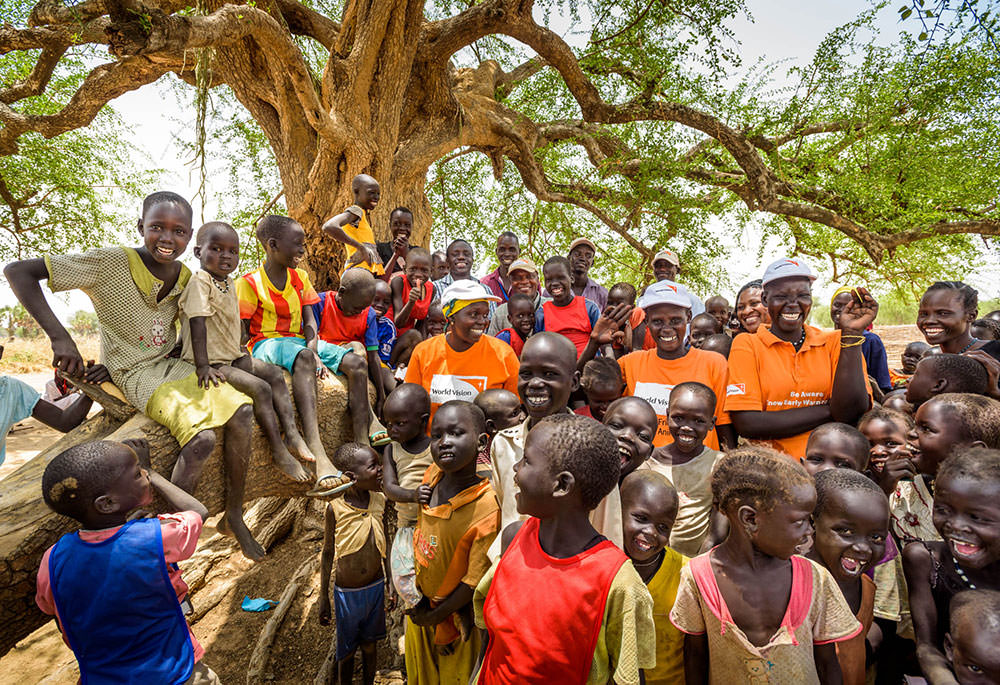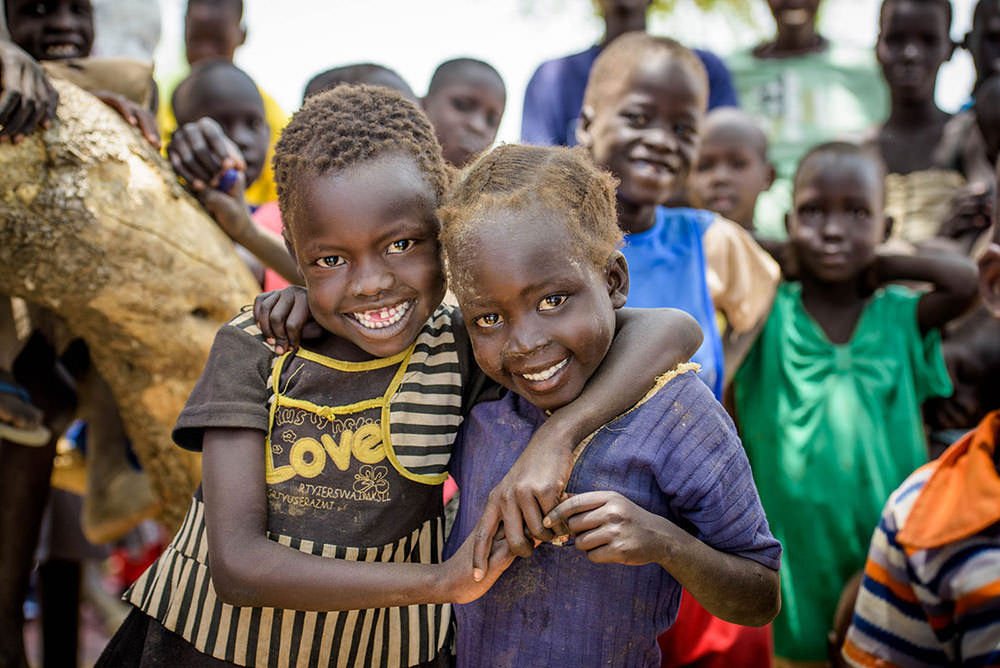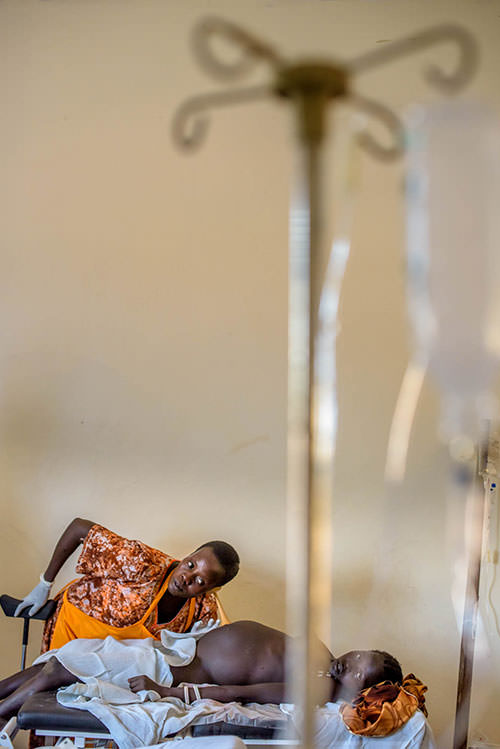The Context
My name is Kari Costanza, and I write stories for World Vision. I started 20 years ago in the video department. Part of my job was watching all the tape that came in from the field. The videos from Sudan really sucked me in. The place had so much potential. They said it could be the breadbasket for that part of Africa, except for the conflict.
Kari Costanza
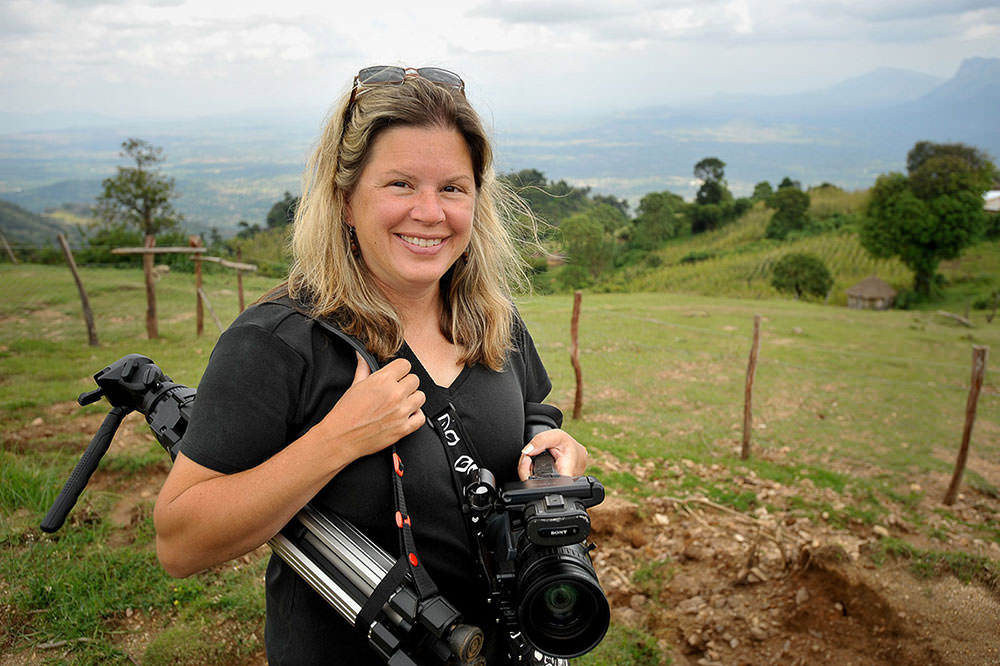
Sudan had been at war since 1955. It’s been called Africa’s longest war. After independence, it became clear that the north and the south were very different places. The north wanted to bring Islam to the south. The people in southern Sudan felt oppressed by the north and fought back. World Vision had worked in South Sudan since 1972 bringing relief and organizing pastors’ conferences. That’s how we work.
Africa’s Longest War
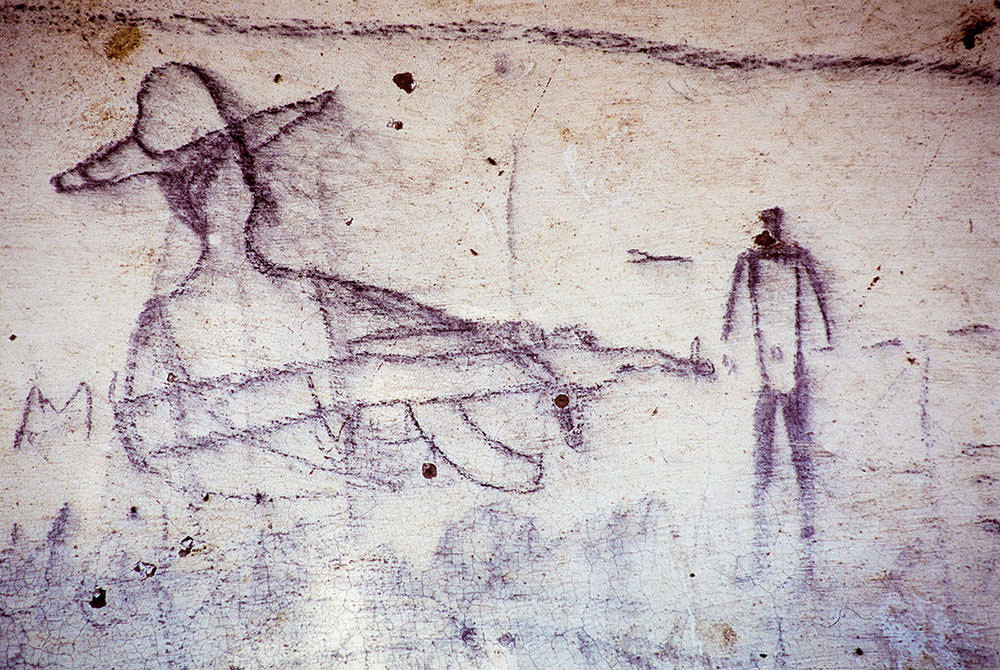
I was really drawn to Bruce Menser, who I’d watch on tape talking about the issues of Sudan, explaining the conflict and how it was shattering people’s lives. Bruce was national director then. I spoke with him a few weeks ago, and he thought about those times.
Bruce Menser
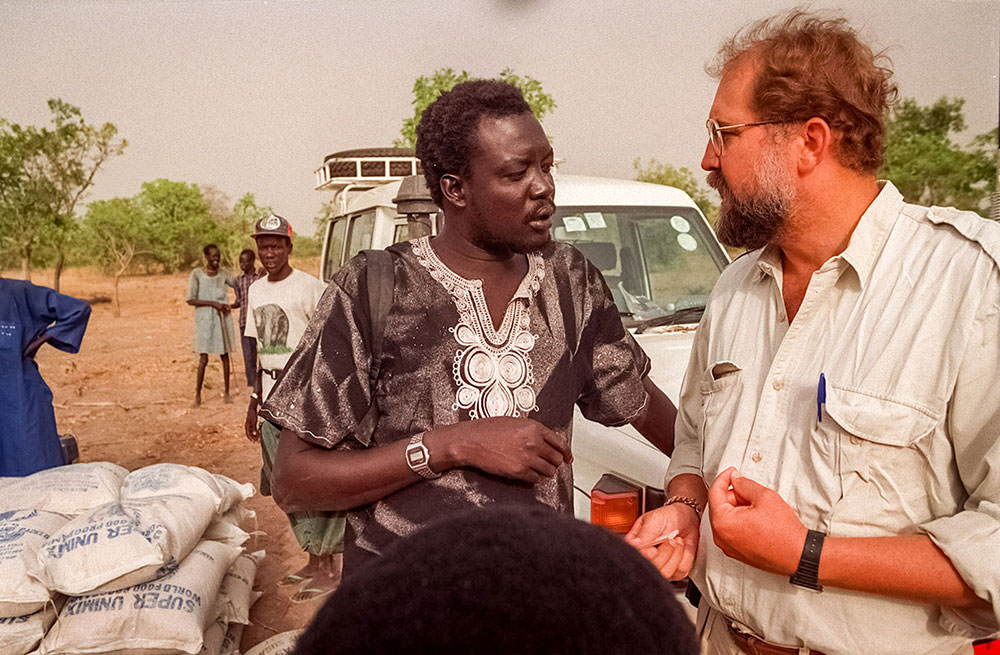
Bruce Menser: We had to deal with the war between the tribes of the south and the war between the north and south and how that would affect the harvest–the crops. They’re displaced in the country. People became refugees outside of Sudan.
“The war”
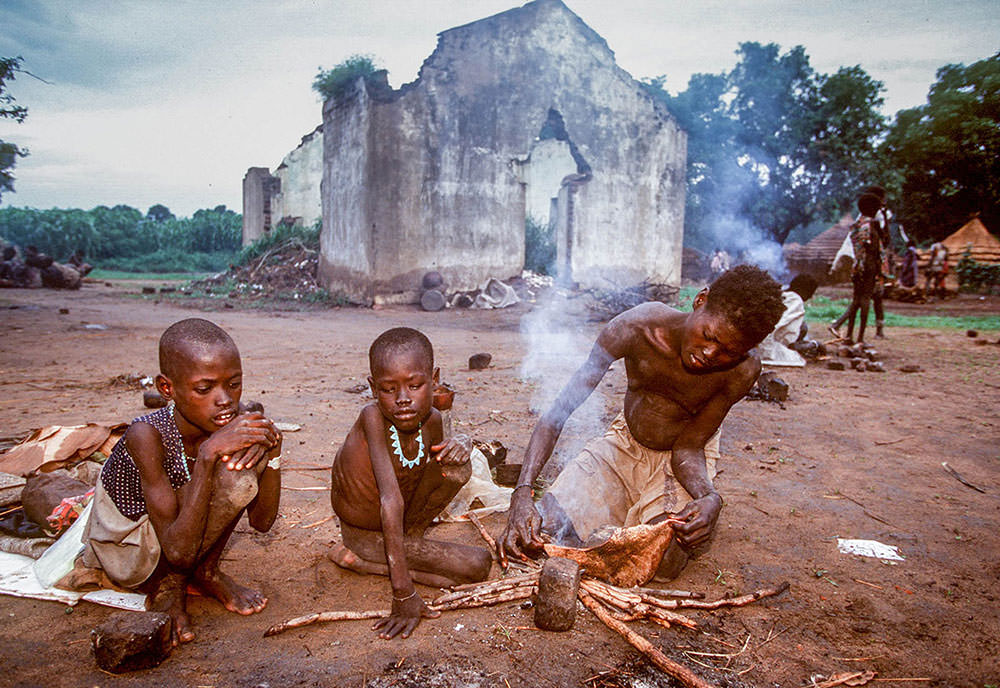
The story then was very similar to the story today. Conflict, climate, and crops. Bruce says the three C’s converged to make people’s lives so difficult.
Conflict, climate, and crops
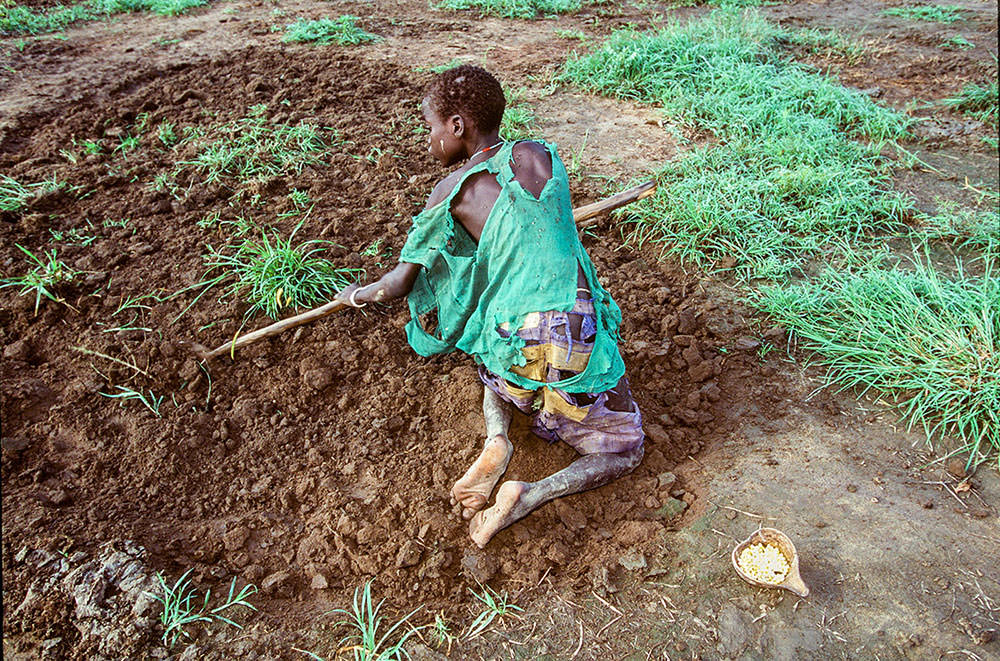
A mix of climate and climate issues, agriculture, and war, and you’ve got a perfect storm that makes it very difficult for everybody.
“A perfect storm”
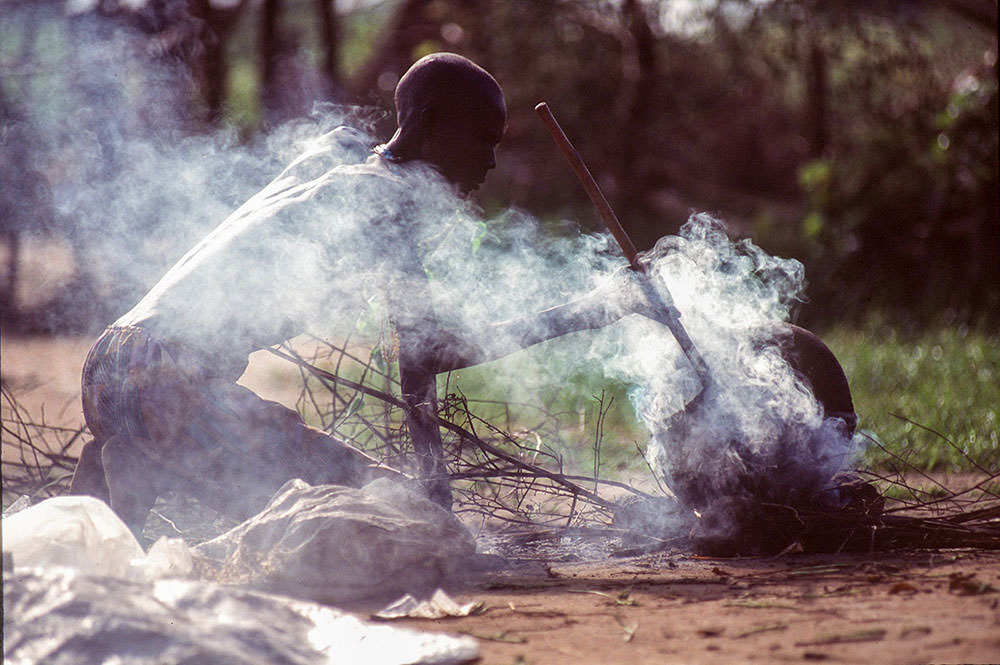
In 1998, things got really bad.
Photographer Jon Warren flew into Sudan to take pictures. It was a hard assignment for Jon, who had covered other famines such as the one in Ethiopia. This was the worst hunger he had ever seen.
Jon’s pictures from 1998
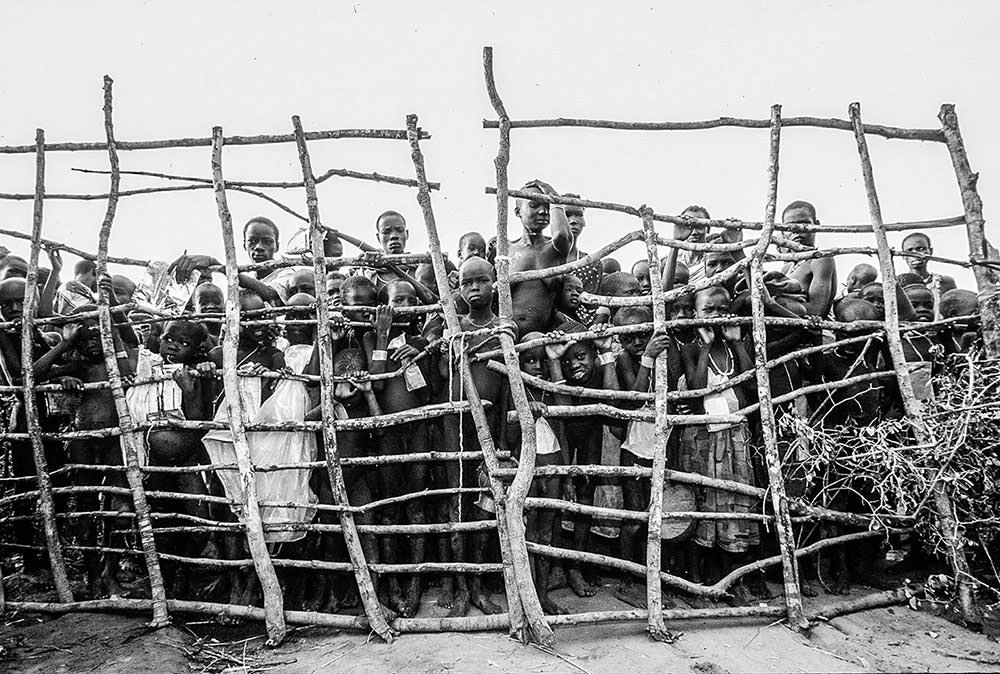
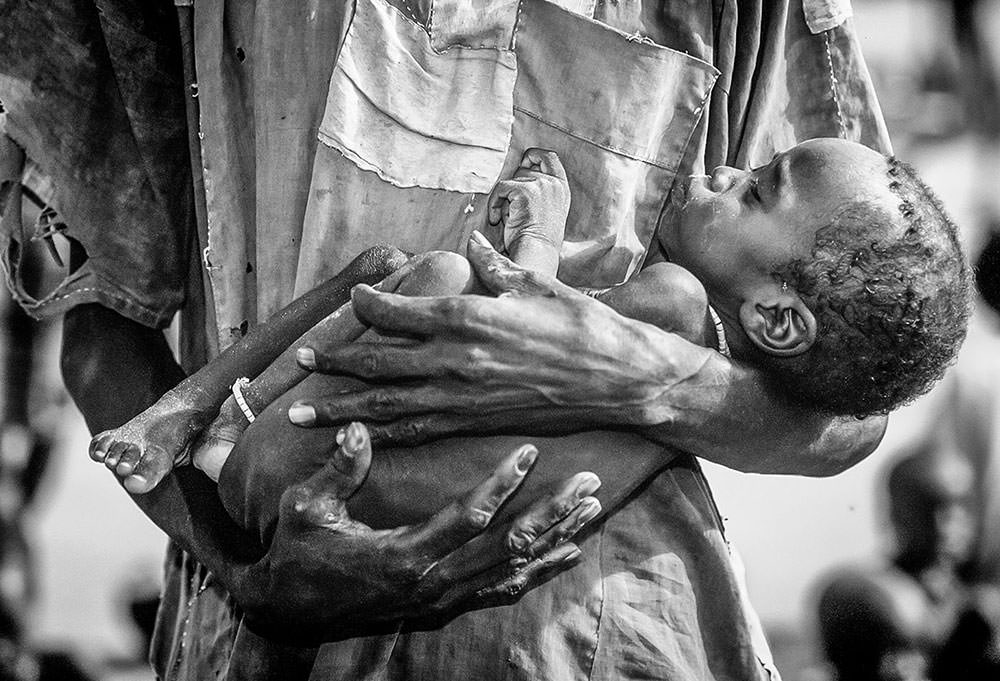
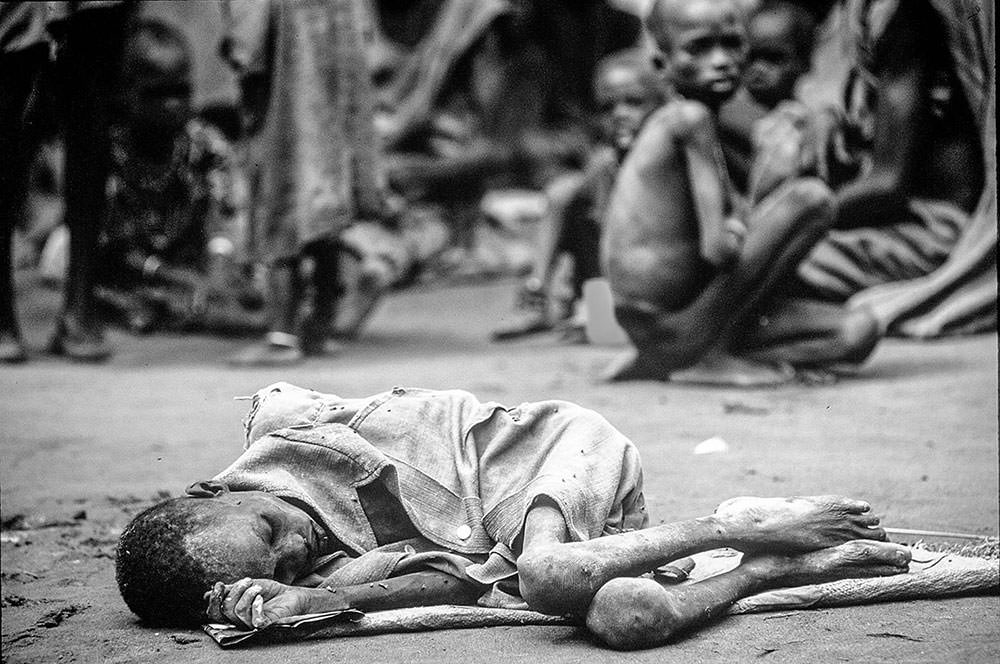
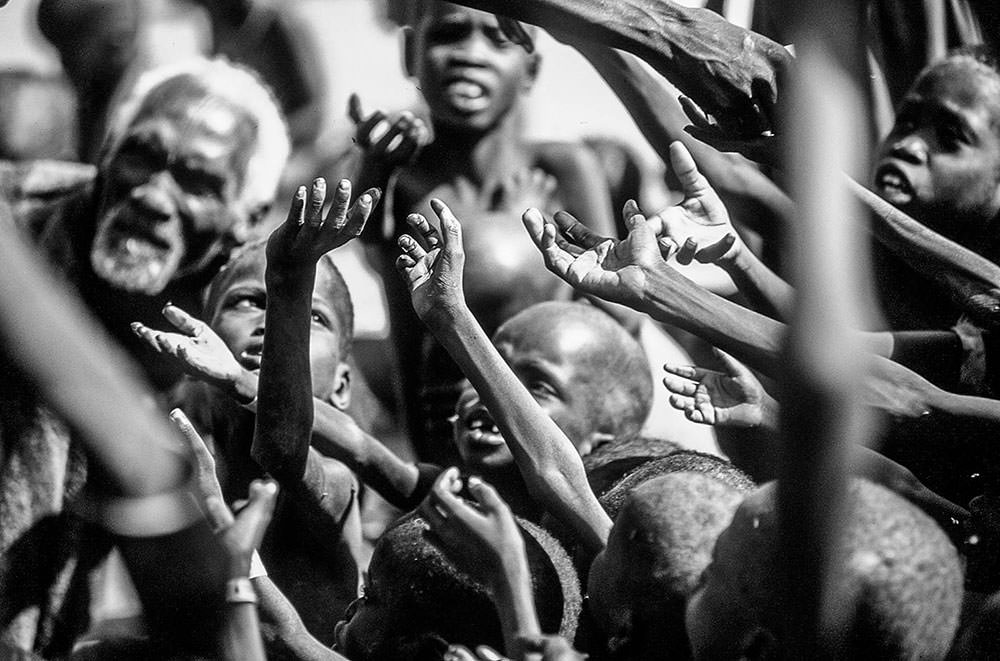
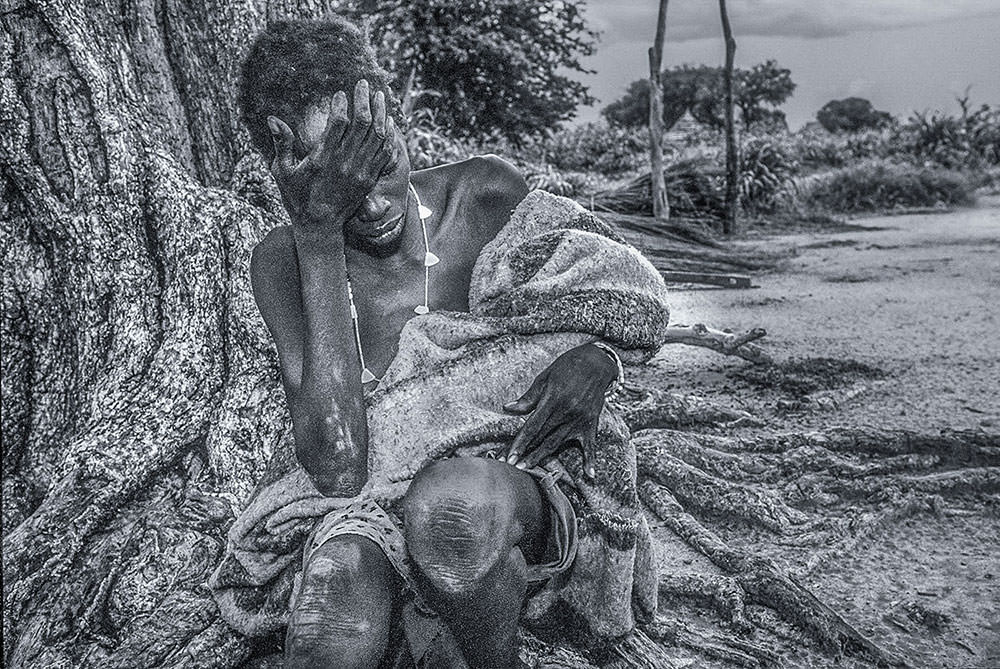
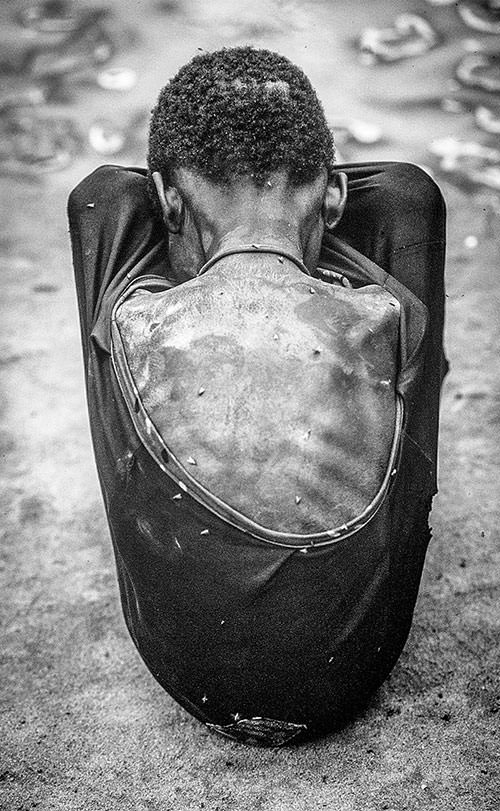
The images are so hard to see. But that’s what it looked like then. That’s what conflict, climate, and poor crops do to people.
1998. My last year in Sudan was another drought and famine year.
We met people who were starving. I can’t get Alal Akec–she was a young Sudanese girl. Alal was starving. We were able to get on our phones from the field and call people and highlight the situation in the media and connect with Operation Lifeline Sudan. In a manner of days or a few weeks, we got food into Bahr El Ghazal where people were facing death.
Alal Akec
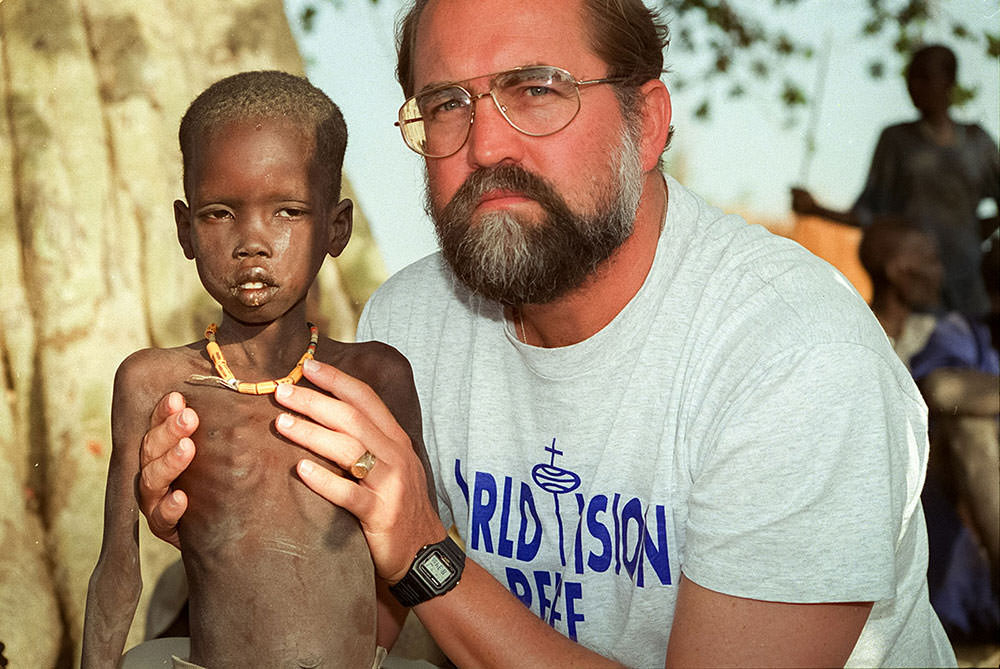
Operation Lifeline Sudan
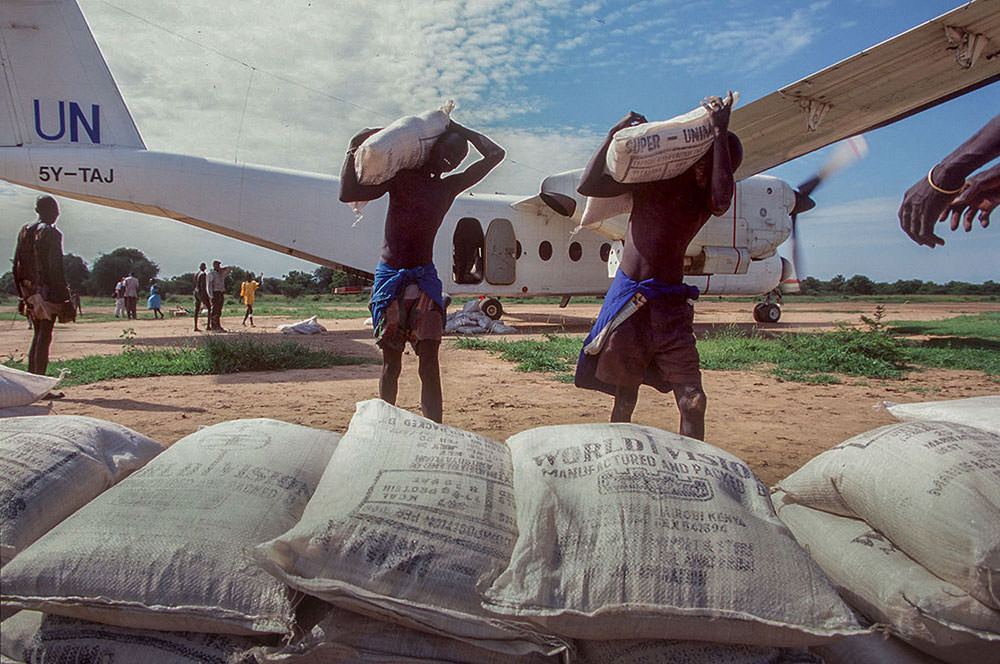
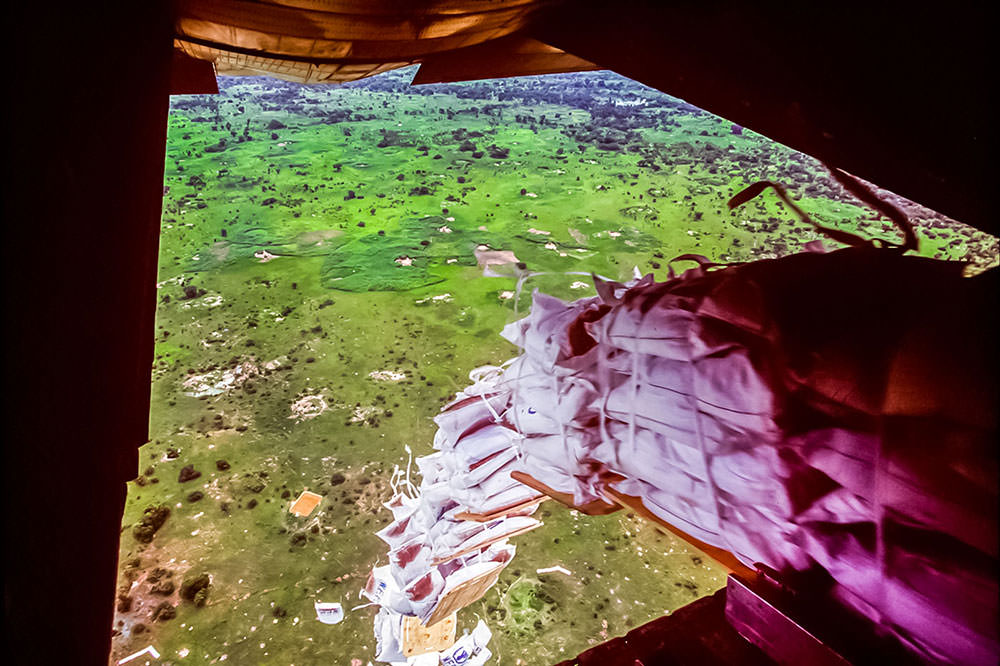
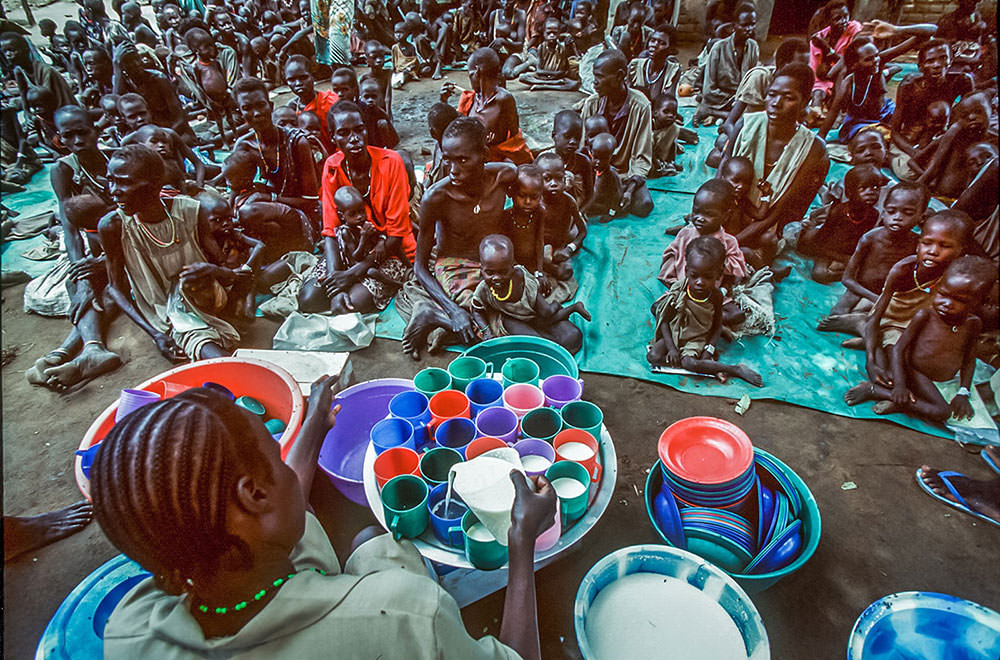
Bruce Menser and the team was part of in food relief, water, health, agriculture, and peace building. He’s never stopped caring about the country.
Great work
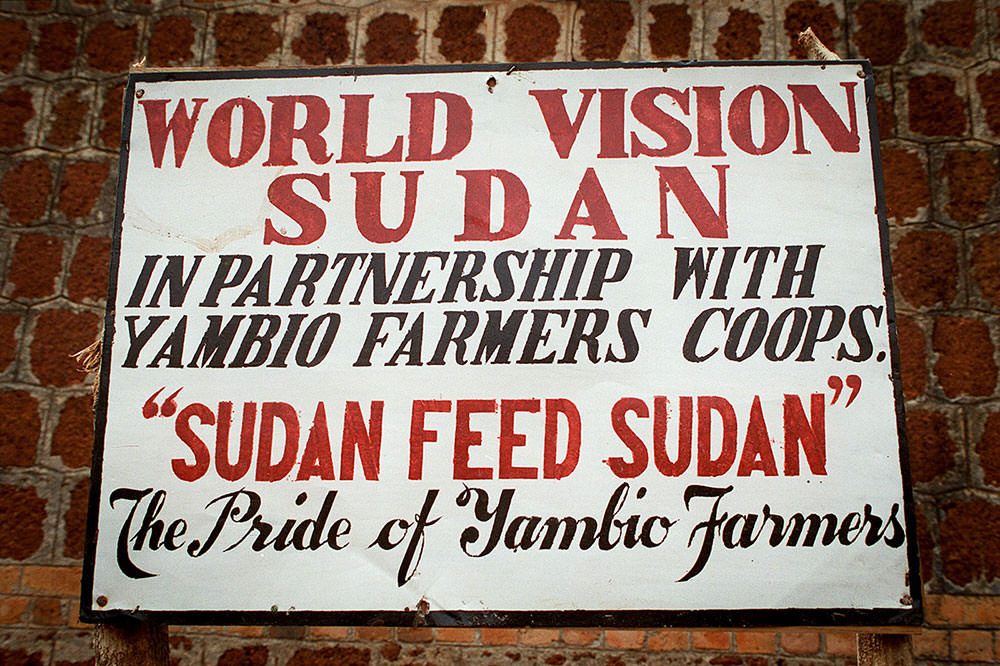
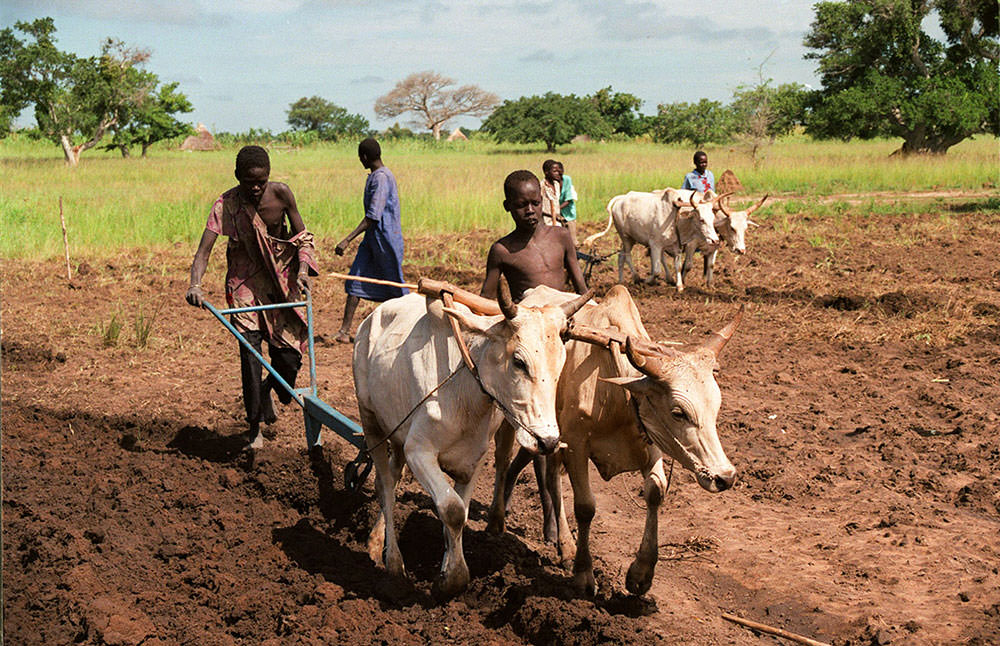
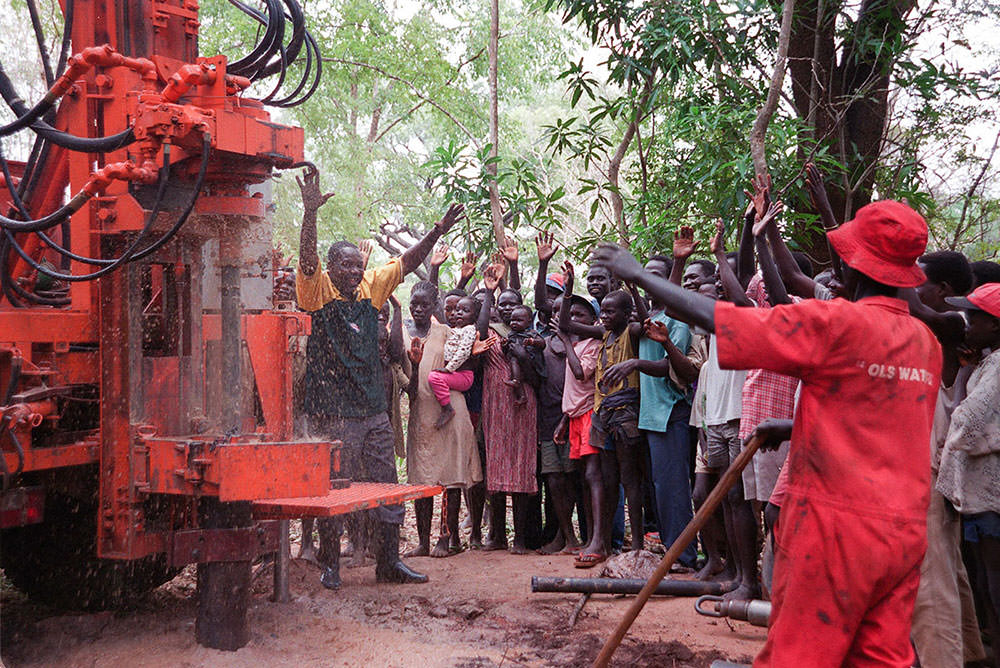
Bruce Menser: Don’t give up on South Sudan. Never give up. Keep praying.
“Never give up”
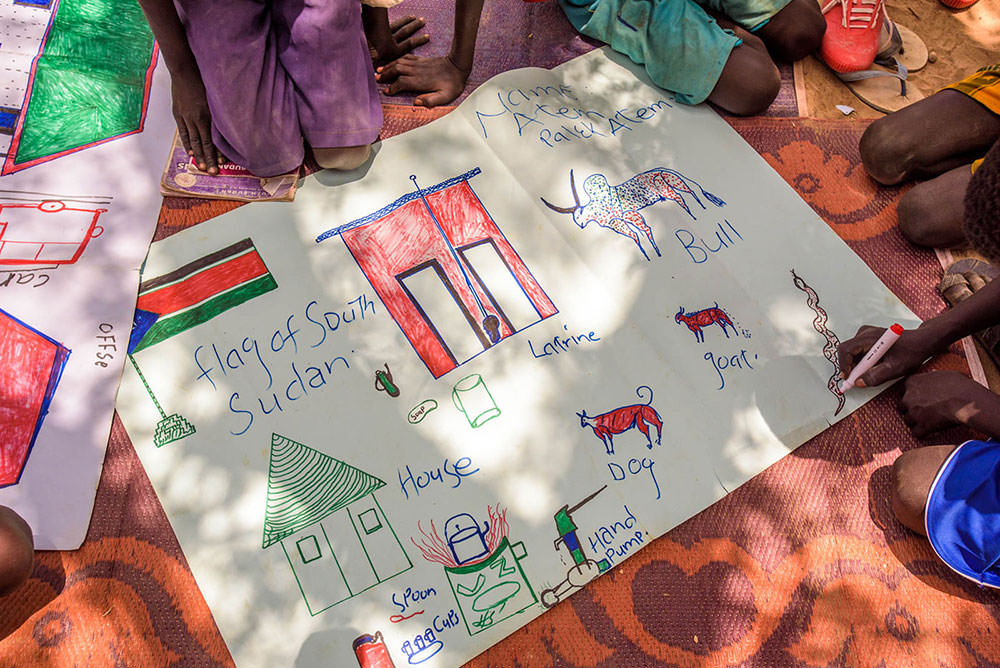
World Vision will never give up on South Sudan. There is too much at stake and there is so much opportunity to change lives for eternity.
In the midst of this difficult situation, we have a great opportunity to be a witness to Jesus Christ and the love of God. It’s so important that we keep loving people and telling them the source of our hope.
“Great opportunity”
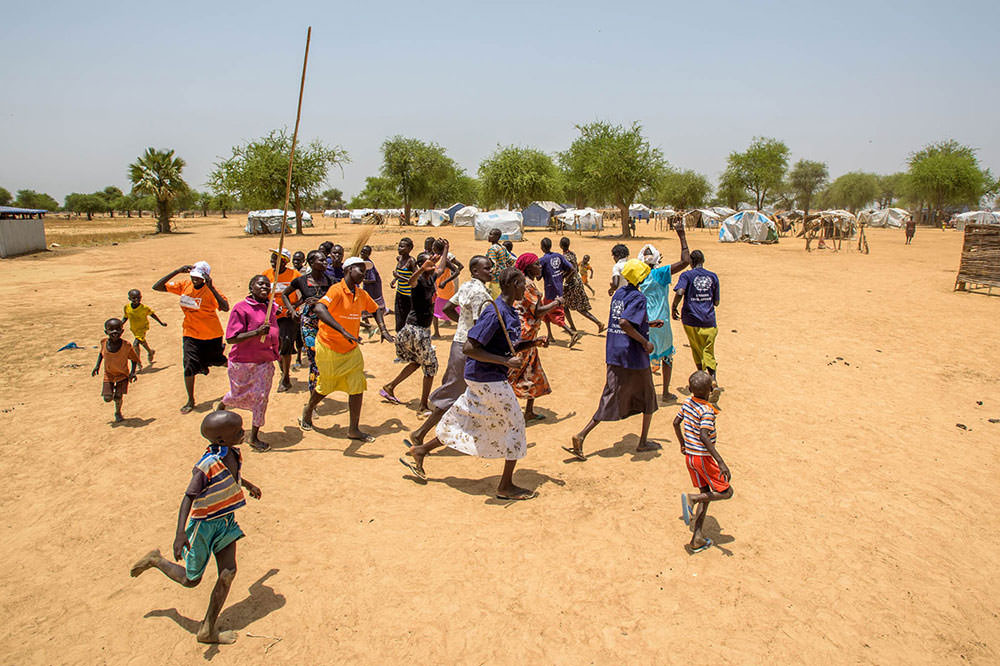
God help us, and God help Sudan. We still are going to keep caring. We can’t give up, right?
The Need
I met Lopez Lomong in July—just as South Sudan was celebrating its fourth year of independence. What an honor. What a story. At age 6, Lopez was abducted from his mother’s lap by armed soldiers during a church service in Sudan. He managed to escape by running with four other boys to Kenya. He grew up there in a refugee camp. In 2001, he came to the live in the United States with thousands of others known as the Lost Boys of Sudan. Lopez is a two-time Olympian, the flag bearer in 2008, and the author of Running for My Life. He says his heart and much of his family is still in South Sudan.
Lopez Lomong
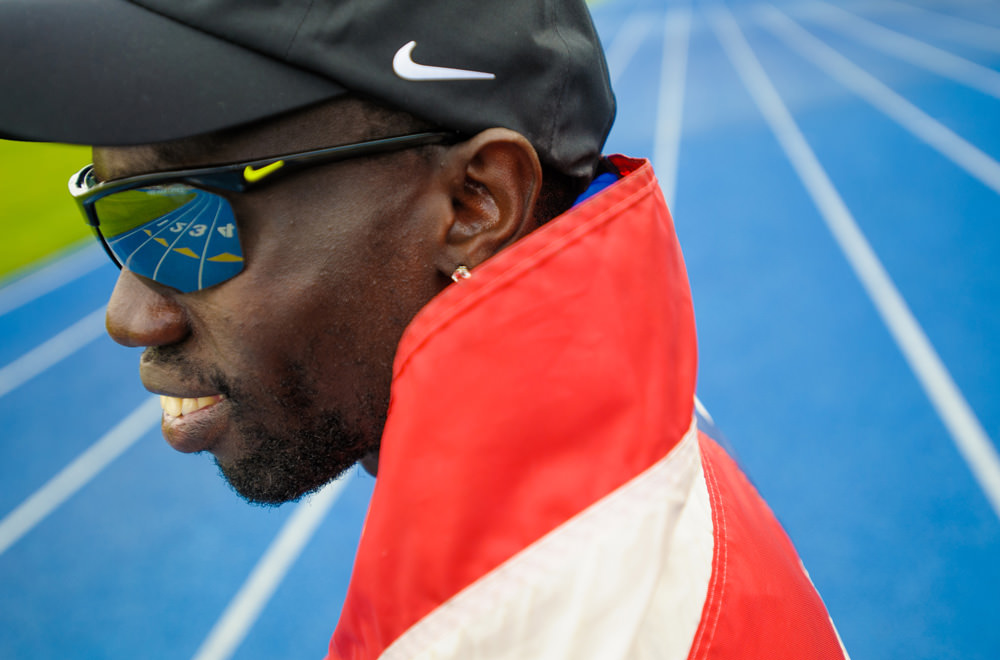
Lopez Lomong: All my relatives and cousins and everybody are still in South Sudan.
Lately, the news is not good. South Sudan is in shambles.
South Sudan is in shambles
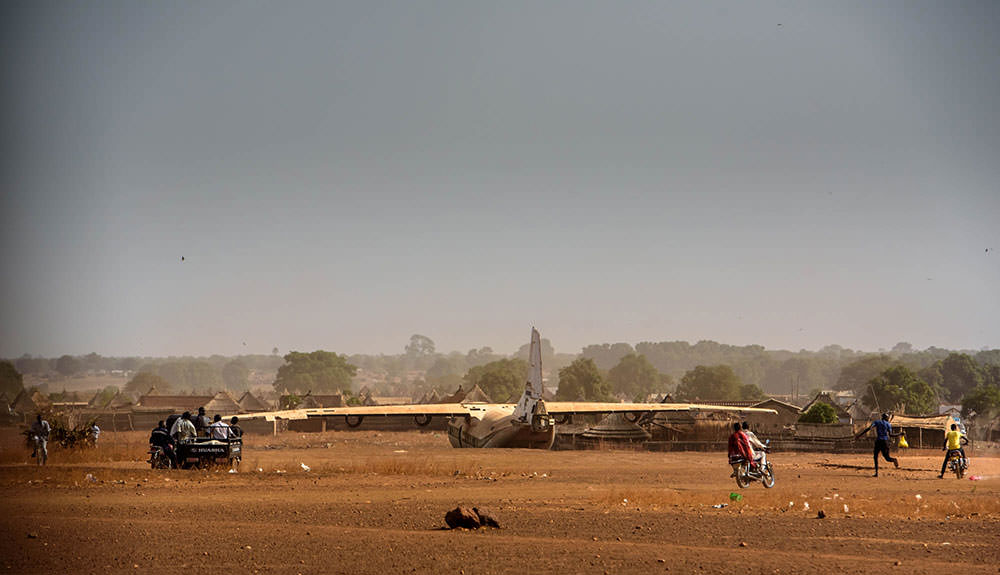
It’s difficult. It’s difficult, and mostly they are talking about how they missed the harvest because they couldn’t prepare their farms because of the conflict currently going on in South Sudan.
When South Sudan became a country, there was a feeling of euphoria.
A feeling of euphoria
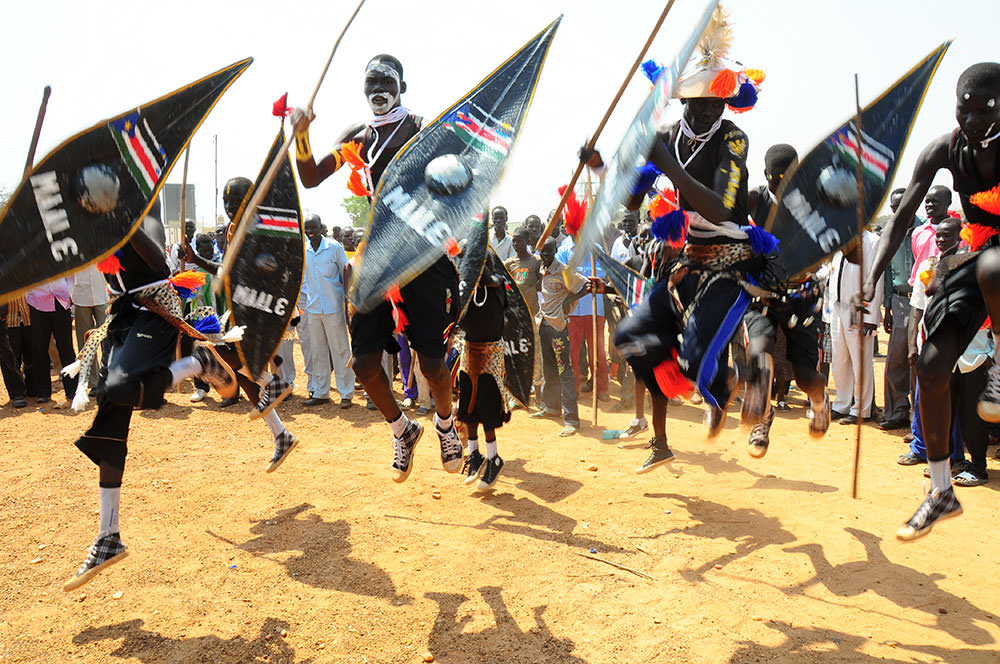
When my mom first went to the ballot box in 2010, and choose–she choose to be independent and have a country of South Sudan, she was so happy. That was the first time she ever voted. I saw that. I witnessed that. There was a lot of hope.
“Choose to be independent”
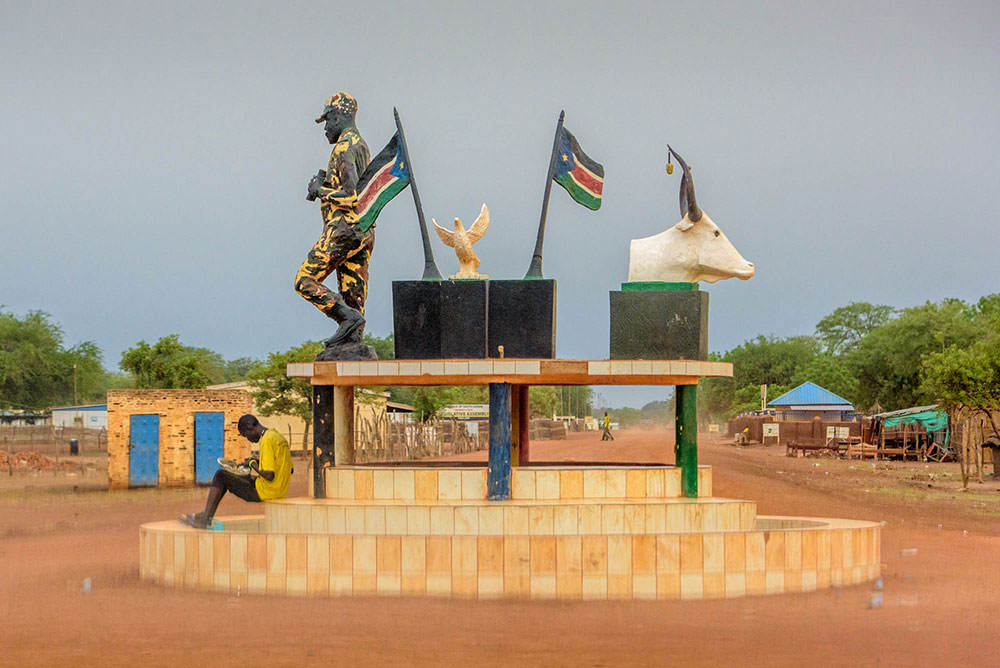
But those hopes have been dashed, especially for children—hungry to go to school and become someone. Their hunger for education is being replaced by hunger for a filling meal.
Hungry to go to school
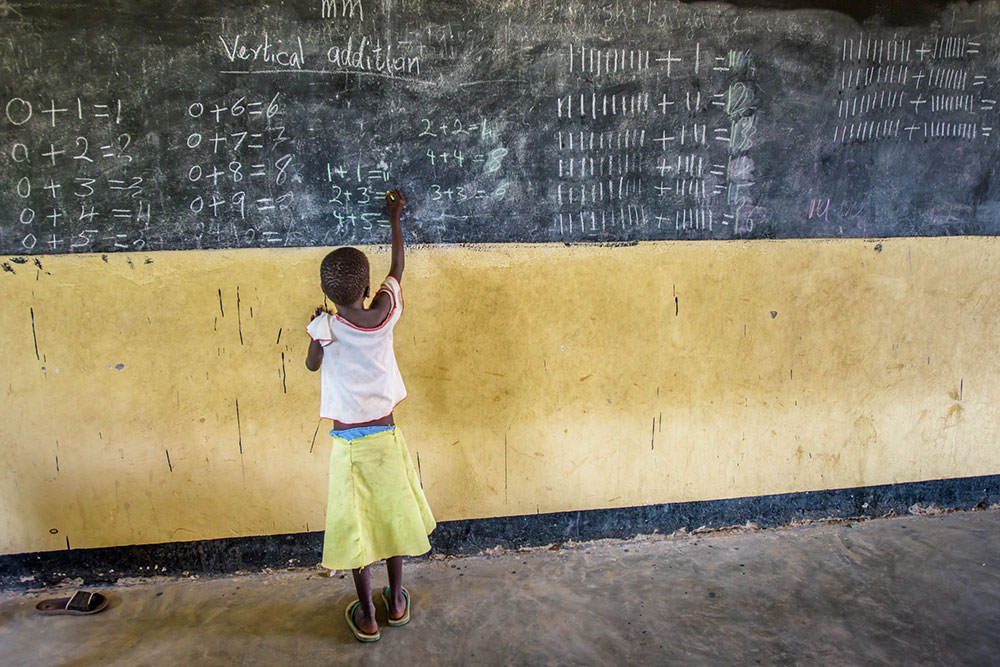
I told Lopez about Abuk Deng Gop, an 11-year-old girl who said the saddest thing I’ve ever heard a young girl say: “My mother died because she ran too slow.”
Abuk Deng Gop
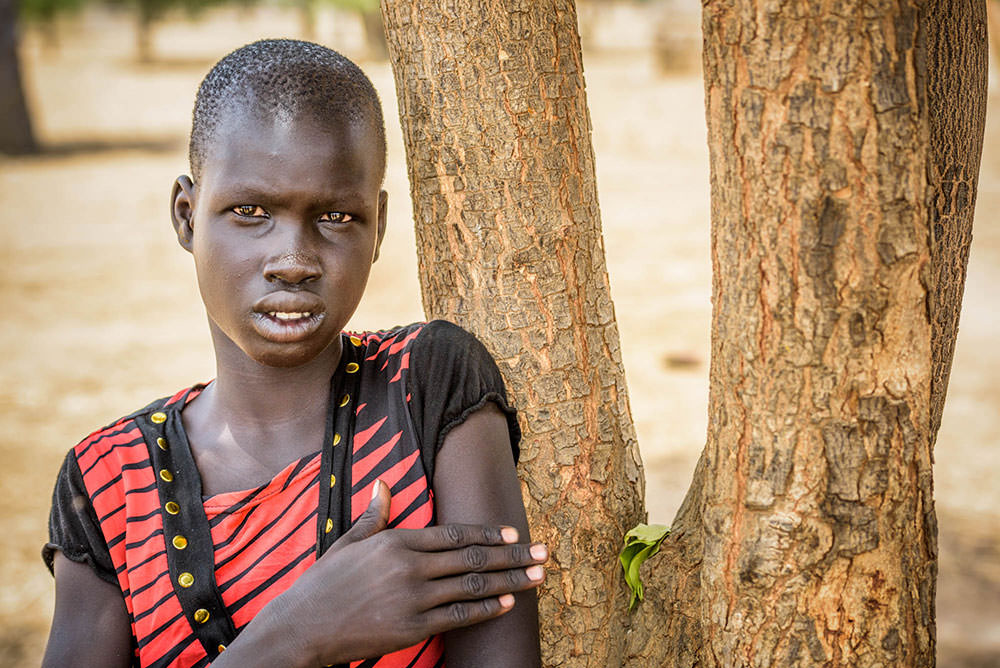
Their father had already been killed in the conflict. When soldiers came to their village, everyone scattered. But Abuk’s mother was sick that day. She couldn’t run. She was killed by gunfire.
World Vision heard about Abuk and her three siblings—two brothers and a sister—and reunited them with an uncle. That’s something World Vision is doing in South Sudan, reuniting families who have been dislocated by the conflict or finding extended families for orphans like Abuk and her family.
Abuk and her three siblings
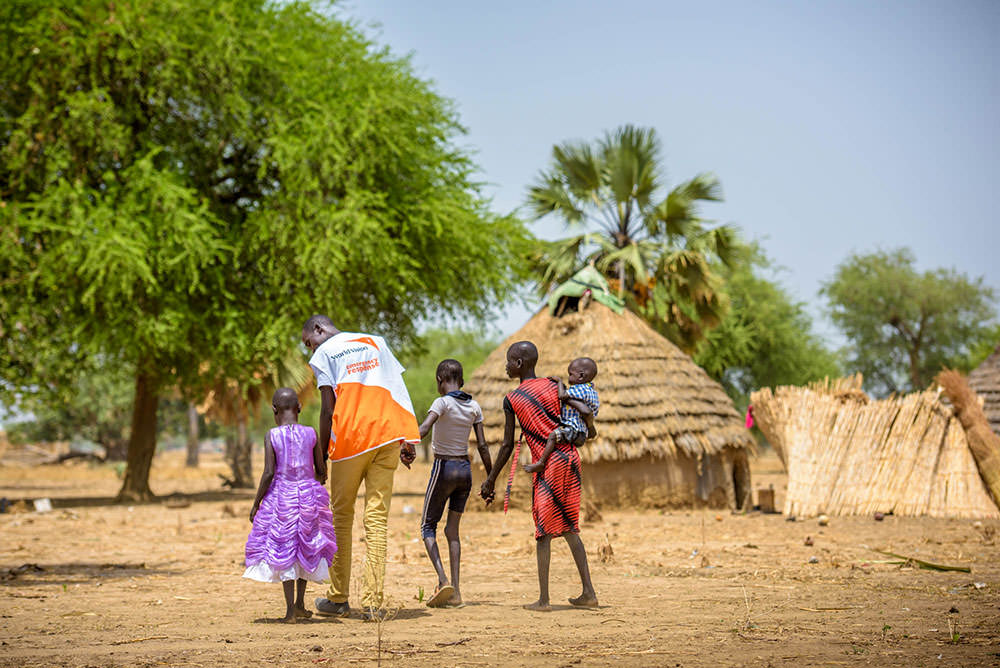
These are the stories that the world needs to hear, and we need to be able to go save these children. They deserve somebody to defend them. To help them. To shelter them. To feed them. To give them medicine. To educate them. She will not be able to sustain … to feed all of her brothers and sisters.
We met a family at a nutrition clinic in South Sudan—a mom, her daughter, and her son, who she said was 2. Nyane only weighed 15 pounds. He was way too small for a 2-year-old.
Nutrition clinic
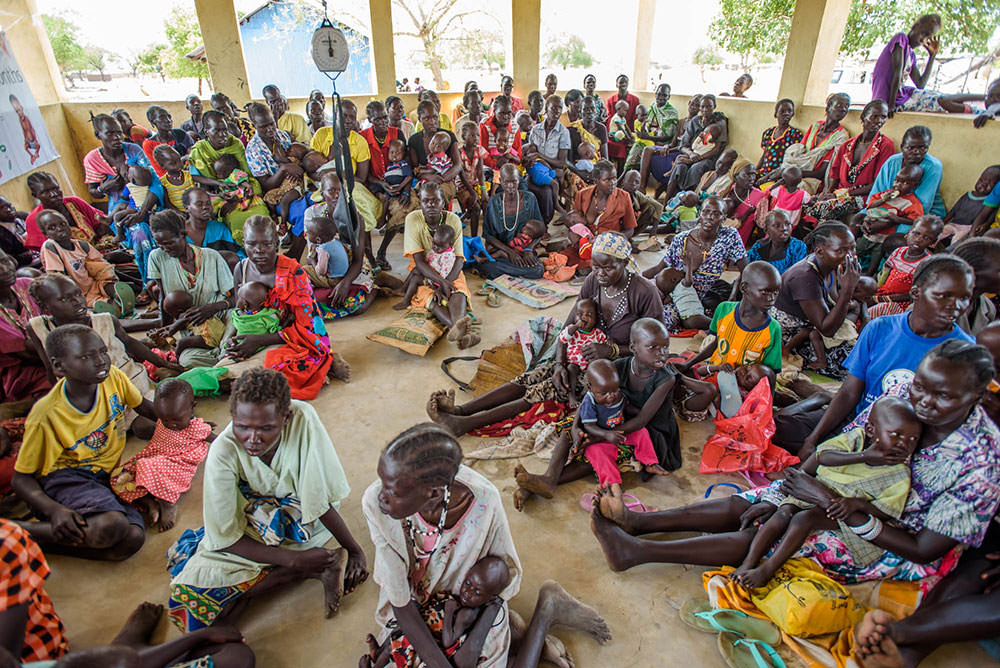
His sister was so afraid he was going to die. She had to lead her mother to the feeding center, holding her brother in her arms. Her mother is blind.
Her mother is blind
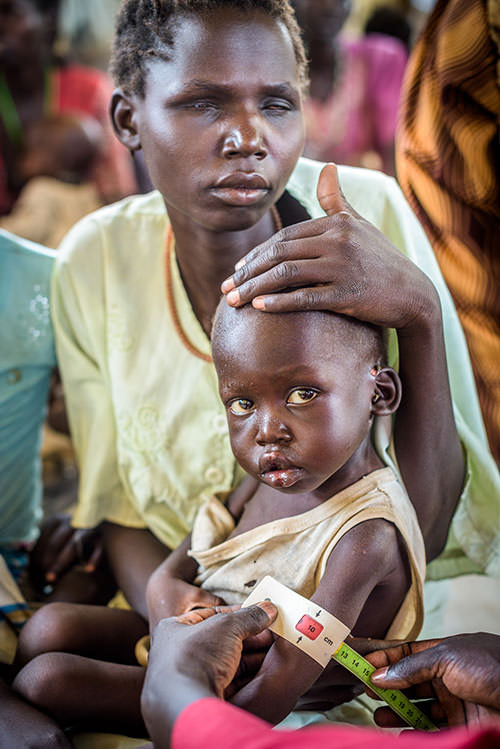
She couldn’t see anything that was going on as staff members worked to save her child’s life.
Staff members worked to save her child’s life
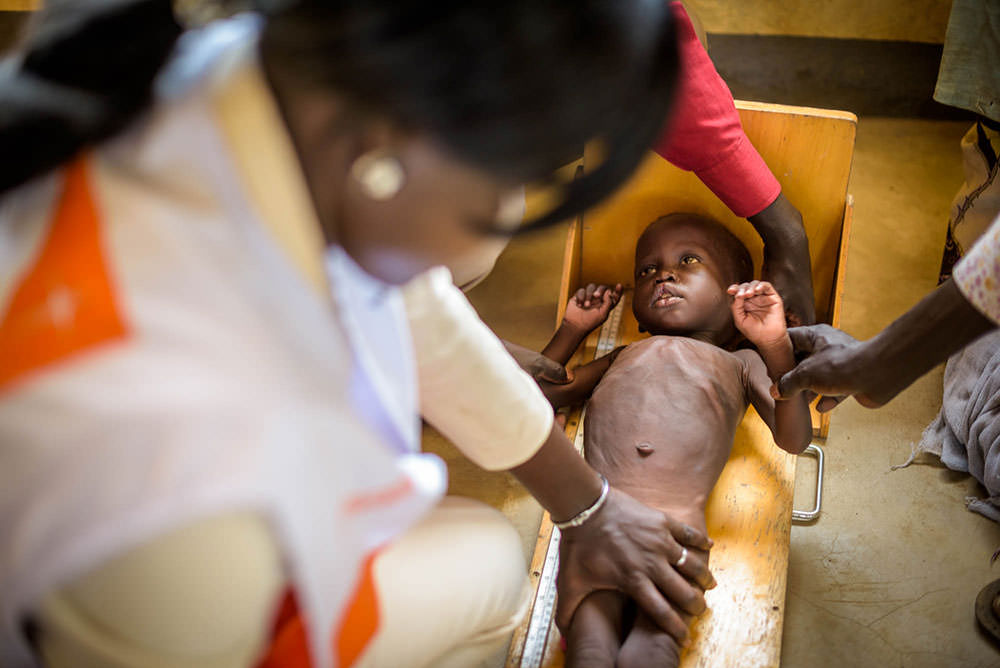
World Vision immediately put the little boy on RUTF—Ready-to-Use Therapeutic Food. In 21 days, it can bring a starving child back to life.
Ready-to-use Therapeutic Food
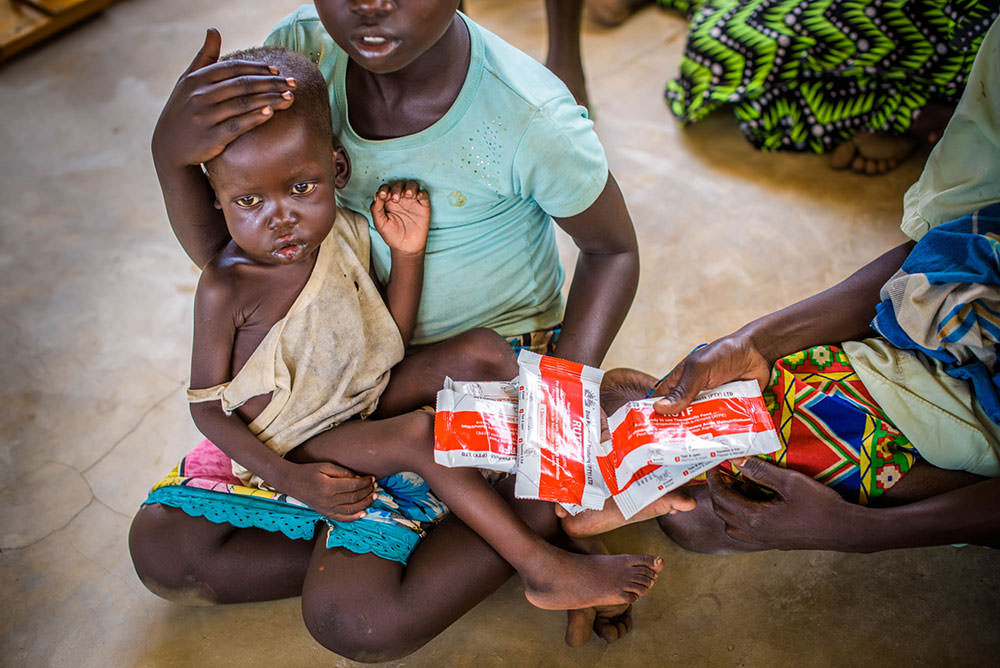
“The mothers bring their children because they need soap,” a staff member told me. Imagine having so little that a simple bar of soap would be motivation. A bar of soap.
A simple bar of soap
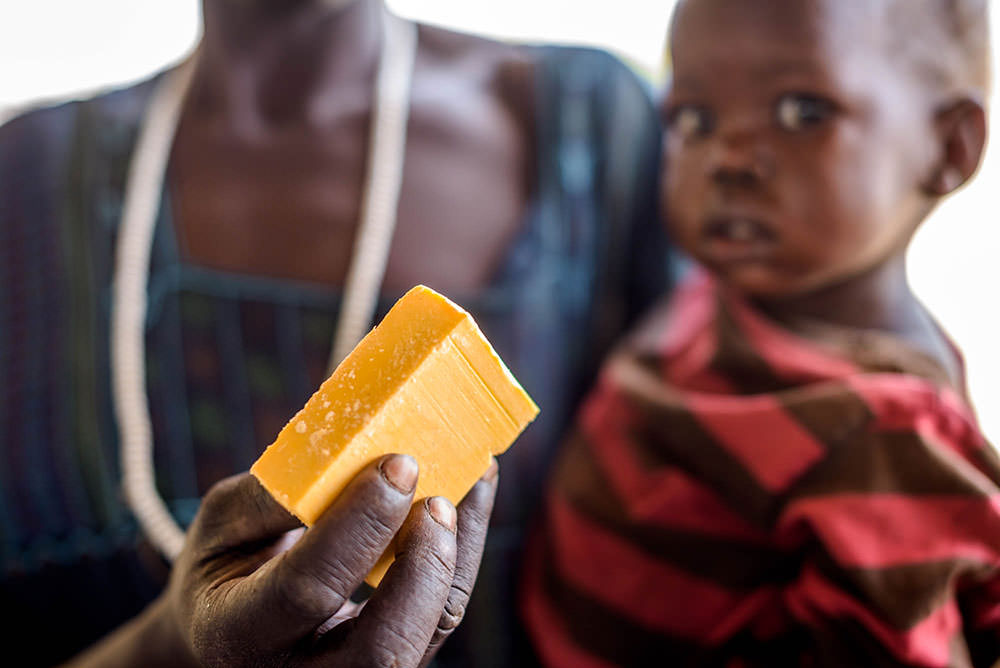
Usually our work is at the village level, training community members to recognize and treat life-threatening diseases, but in South Sudan, there is very little healthcare at the village level. And in some places, there are even no hospitals.
Where my mom lives, there is no hospital there. That’s the truth. When they get sick, they have to walk to the nearby capital, which is Torit. People are still dying from malaria in South Sudan.
“There is no hospital there”
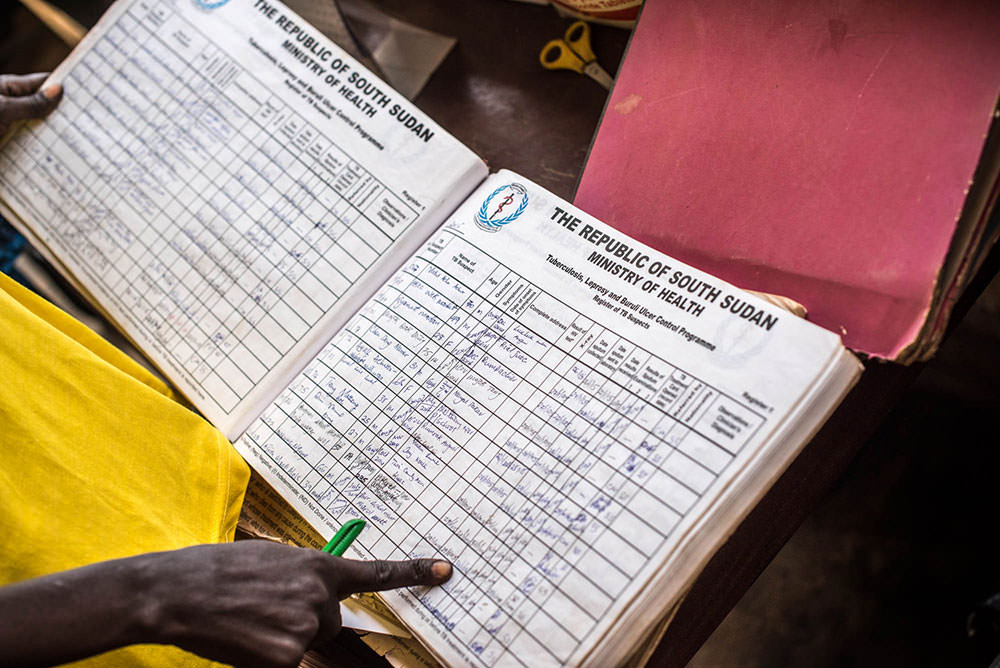
People are dying. At one hospital where we visited, we watched a mother prepare to give birth. Her baby wouldn’t come through. Nurses tried their best to deliver, but the baby wouldn’t budge. That day, there was no electricity at the hospital. There was no way to perform a C-section. The baby died.
People are dying
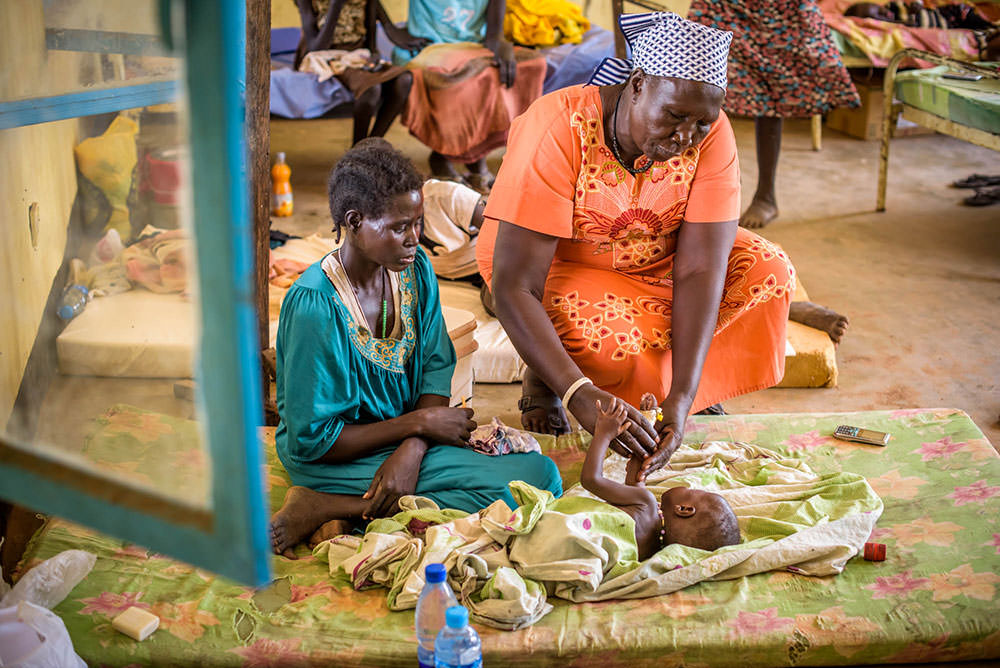
It’s just so hard. It makes me feel an ache in my heart to see a country that had so much blessing. A lot of people were happy to say, ‘I’m South Sudanese.’ The flag was raising high. There are all these things that aren’t connecting. We need those dots to be connecting.
“The flag”
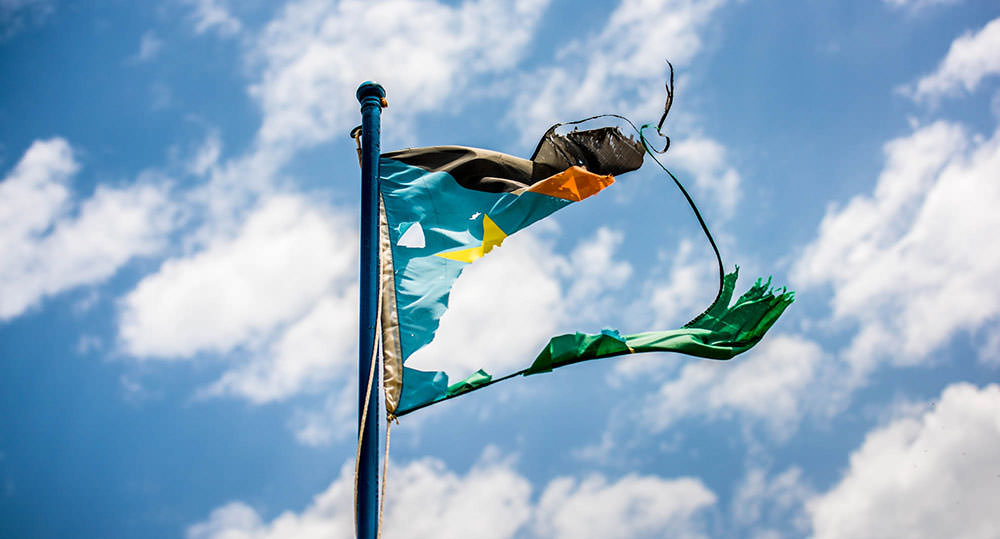
There’s a way to connect those dots, Lopez told me. It’s through people.
South Sudanese have a special quality, he says.
Resilience. South Sudan has been in conflict for over 22 years, and it’s still there. I think they will never give up. The people of South Sudan are resilient, will come out of this stronger than ever, and they will build their country to be one of the best countries in the world.
“I think they will never give up”
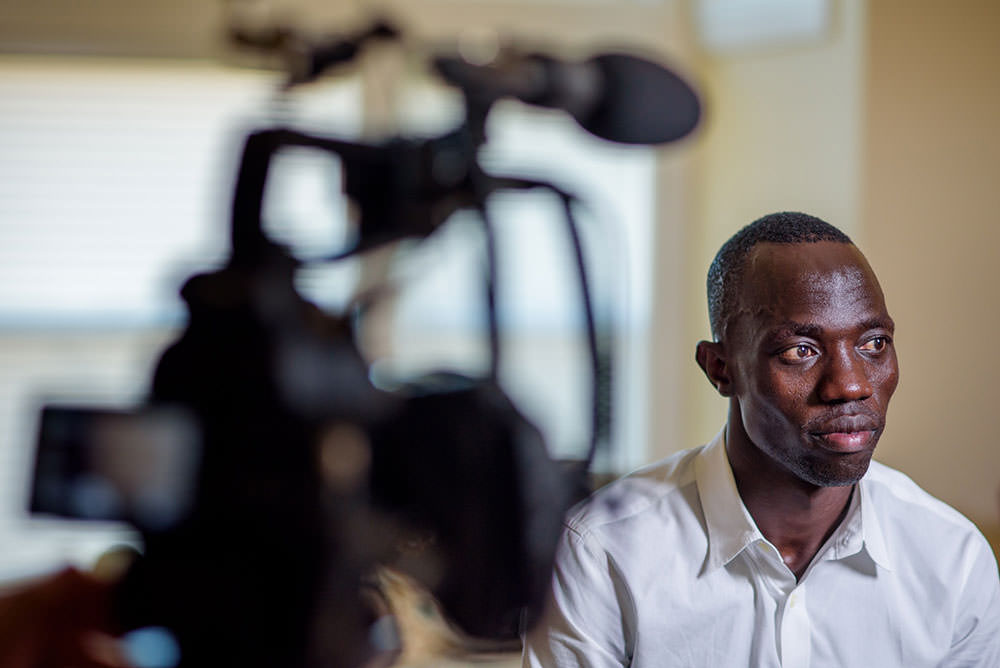
The people of South Sudan are resilient

As a boy, he ran away from the fighting. Now he’s running back into the fray.
Running back into the fray
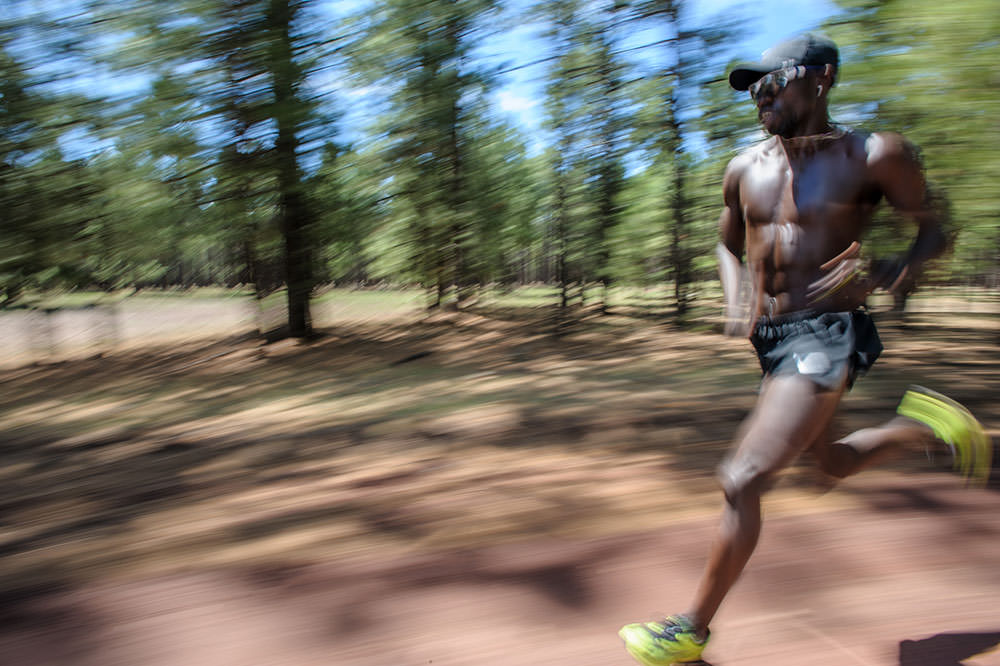
I ran away from the bad people who wanted to hurt me. When I came to this country, I realized why I am running. I was running for something greater. Now I’m here. I’m on the track representing the country that took me in. I give them thanks for what they did. I am also running with peace and joy. I’m no longer running with fear. I want those kids to be able to have that also in South Sudan.
“I want those kids to be able to have that also in South Sudan”
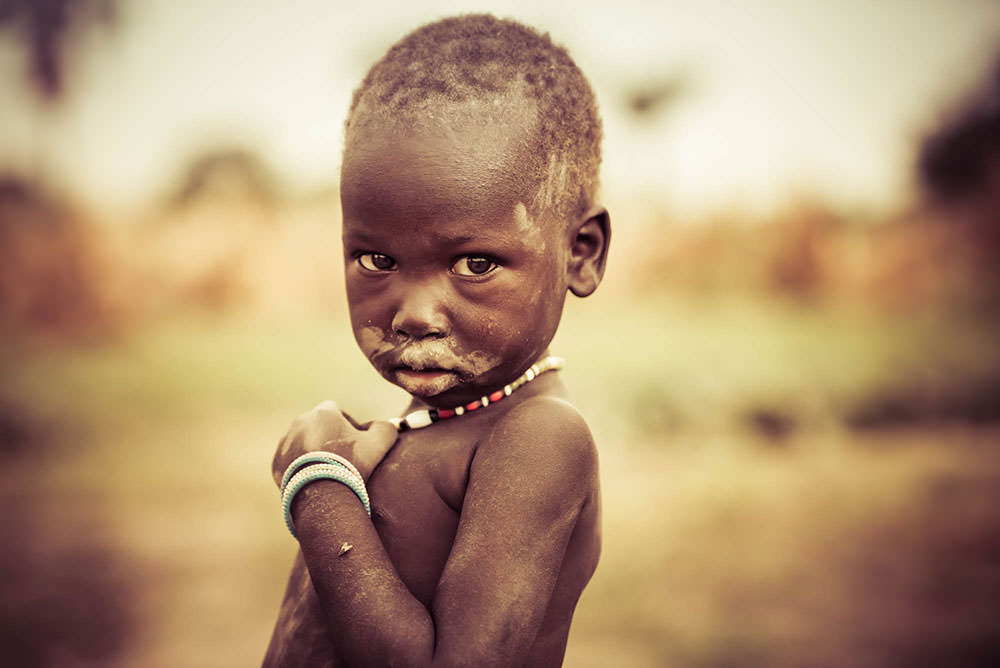
The Hope
I met Perry Mansfield back in 2011 in Kenya. He was with our global rapid response team, tackling the food crisis in the Horn of Africa. Perry and his wife live in Juba, the capital of South Sudan. Perry is exactly what South Sudan needs right now.
Perry Mansfield
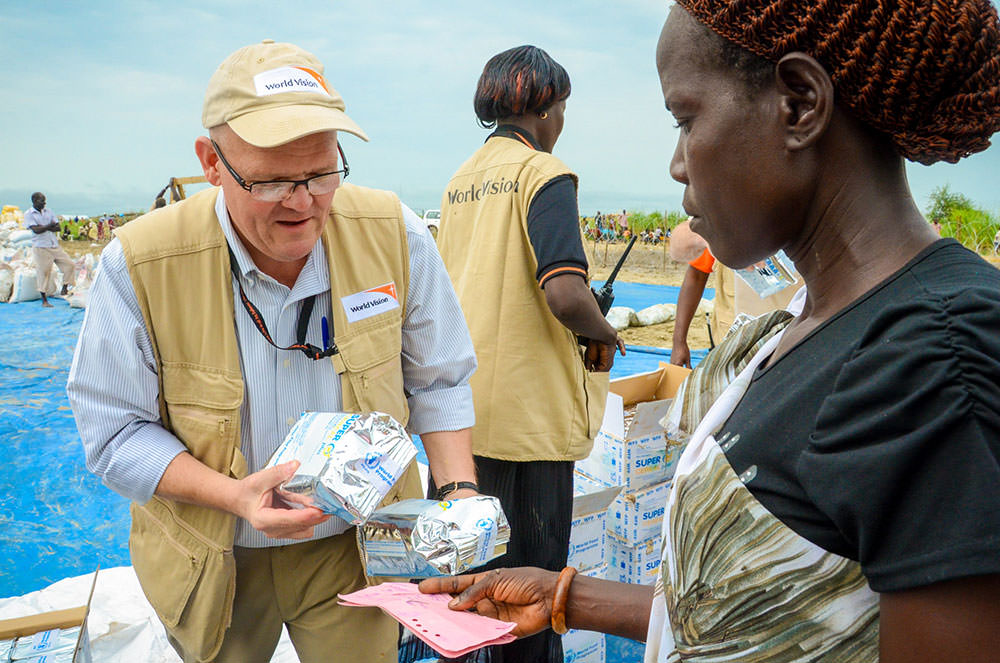
Perry Mansfield: We are making sure children, communities, families have access to healthcare and continuing their education. Making sure they have access to markets for their farm products, or new techniques on growing produce so that they can earn a living.
“Families have access”
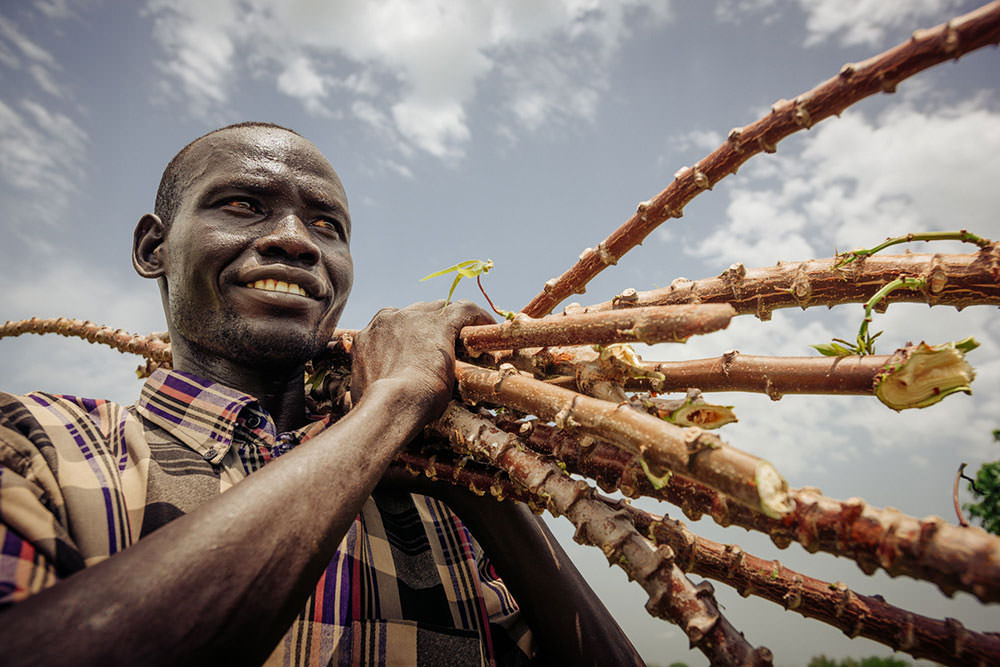
We spent a Saturday morning with families who garden together in Kuajok, the capital of Warrap state. Inflation is driving all prices up, including vegetables, but the eggplant, squash, arugula, onion, and tomatoes growing in this garden are free. World Vision supplied the seeds and the training.
Families who garden
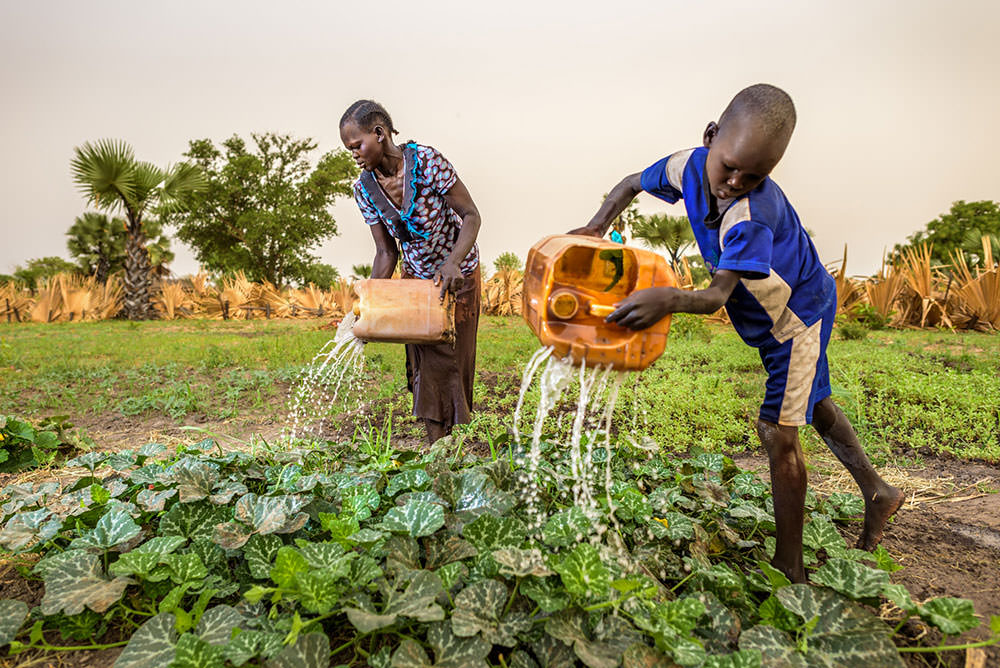
One little boy, Mayar Mayar, told me he likes watermelon the best. He said it put more water into his body and makes him healthy. When children have favorite foods they actually get to eat, it speaks volumes about the hope in their lives.
But other families can’t grow their own food, so World Vision supplies it.
On the emergency side, the largest programming is food. We are distributing food to those who have been displaced by the conflict. Today, I think we are World Food Program’s largest partner.
“Largest programming is food”
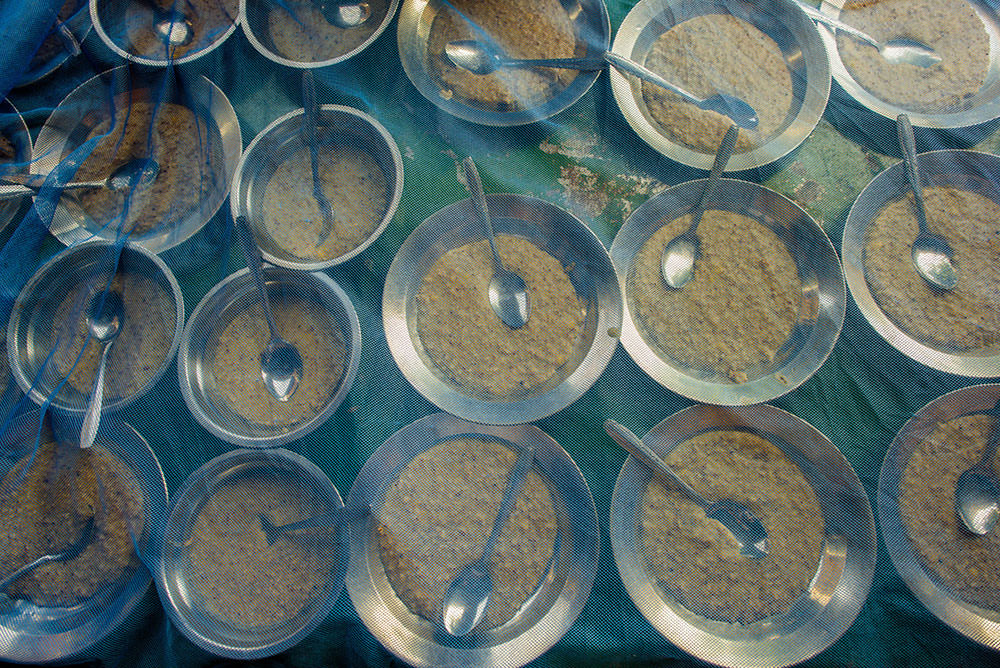
We visited St. Joseph’s School, where World Vision provides food for hundreds of children every school day.
St. Joseph’s School
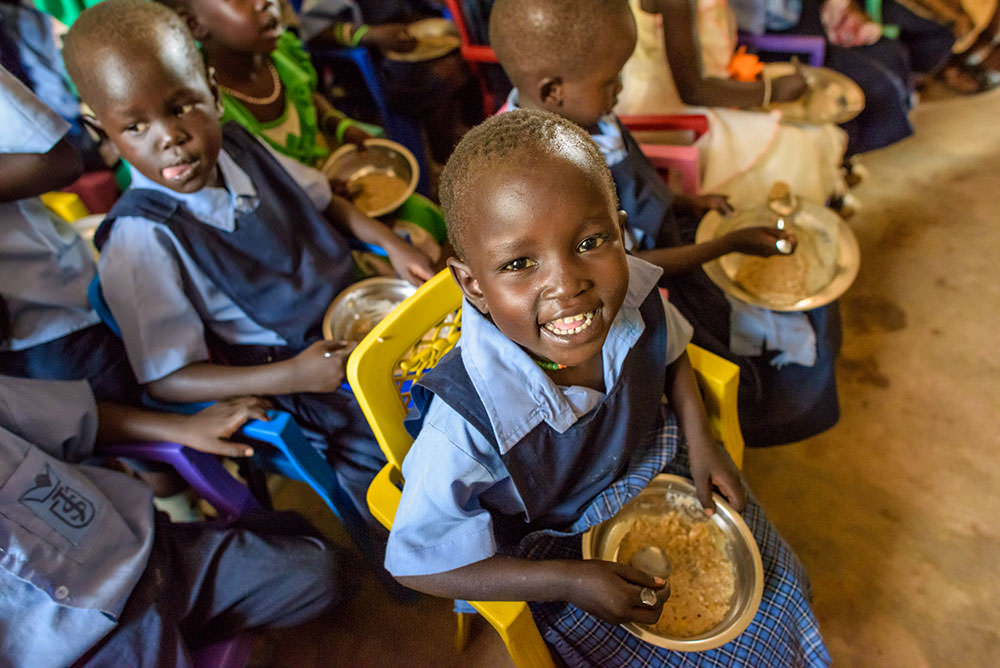
Their teacher, Sister Margaret, told us that the children at this school used to be too hungry to study. Ring, a 10-year-old with a very sweet smile, says with complete honesty that since he can eat, now things are better.
Sister Margaret
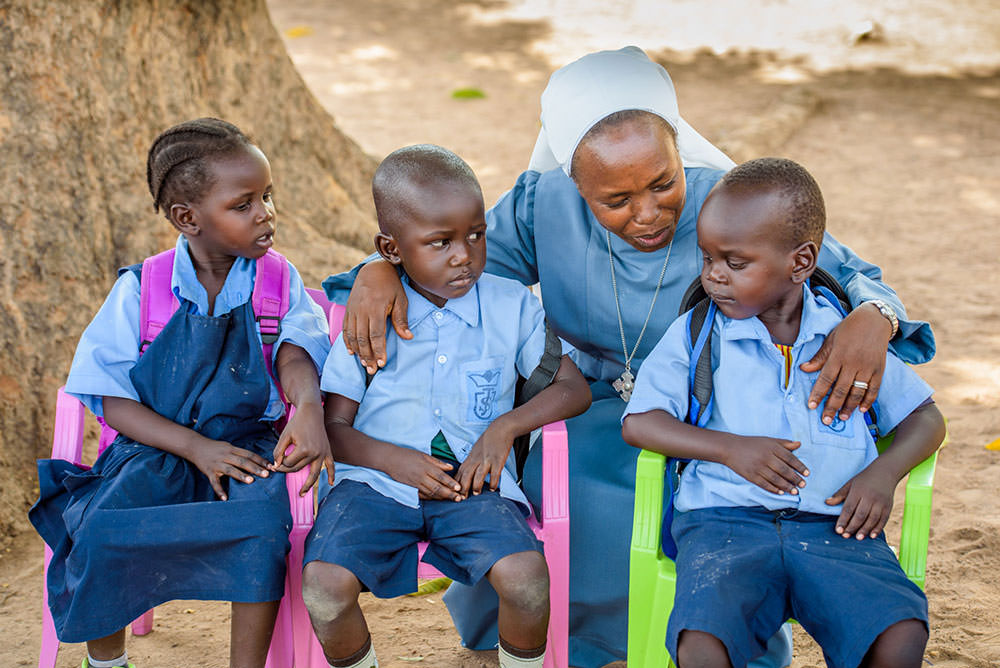
Ring
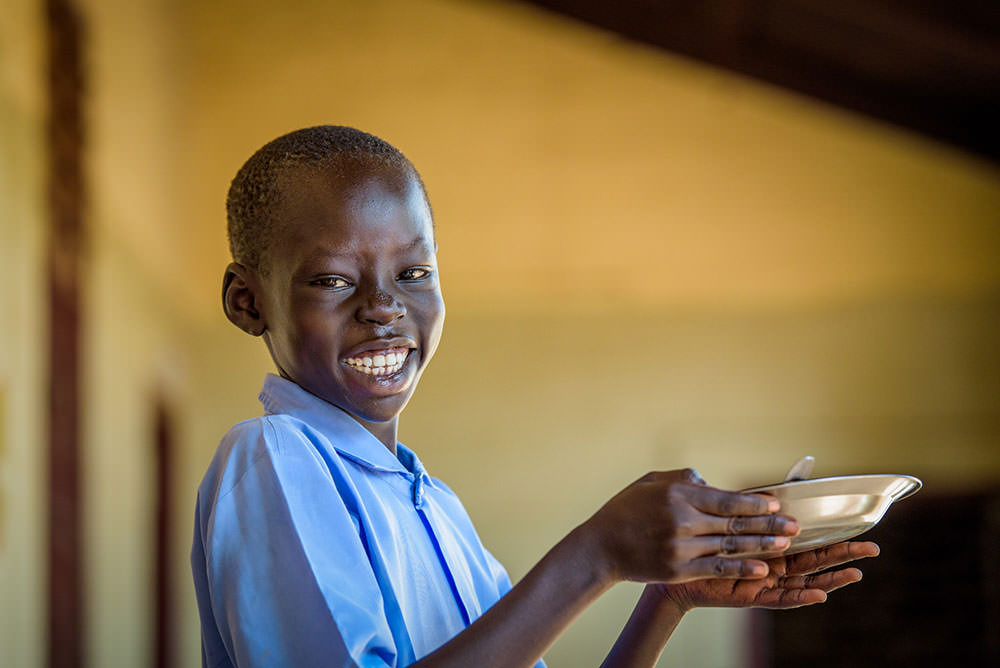
Other children in South Sudan need more support—especially those who have run from their homes.
We visited a camp for internally displaced people in Warrap state. It was dusty and dirty. But we saw happy kids there, playing soccer, jumping rope, and drawing pictures under a tree at a World Vision Child-Friendly Space.
Camp for internally displaced people
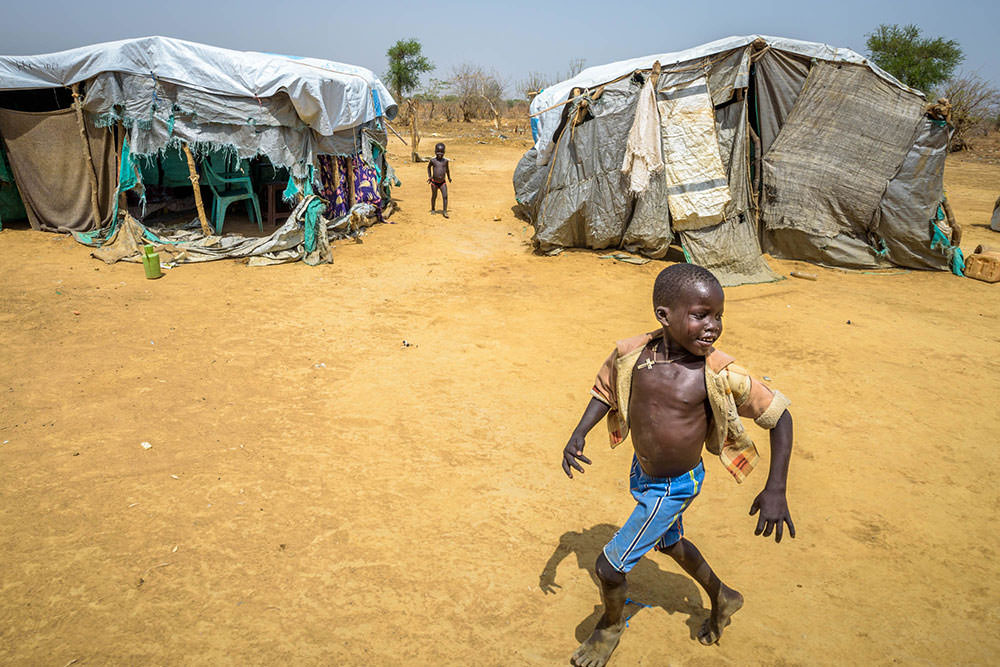
Dusty and dirty

Playing soccer

World Vision sets up Child-Friendly Spaces to make sure kids have a chance to be kids, even though things are falling apart around them.
Child-Friendly Spaces
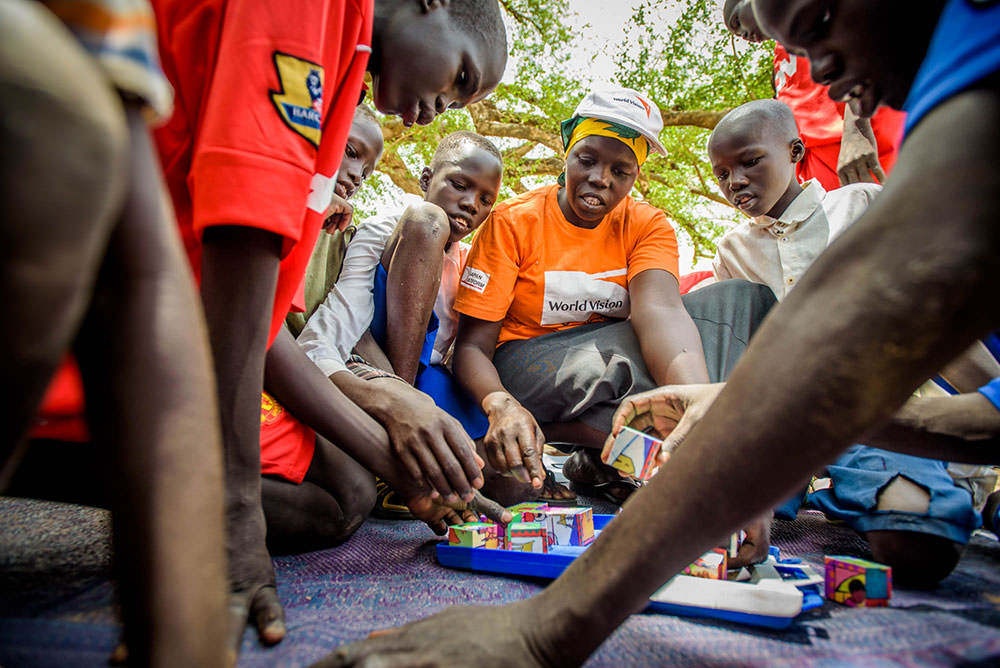
We are making sure people have access to clean water. When you run from your home, you leave everything behind, so they need things like sleeping mats or plastic sheeting to cover up the huts they put together. Or they might need mosquito netting because it is a wet place with a high degree of malaria. We provide the sort of items you would need to continue to live.
“Clean water”
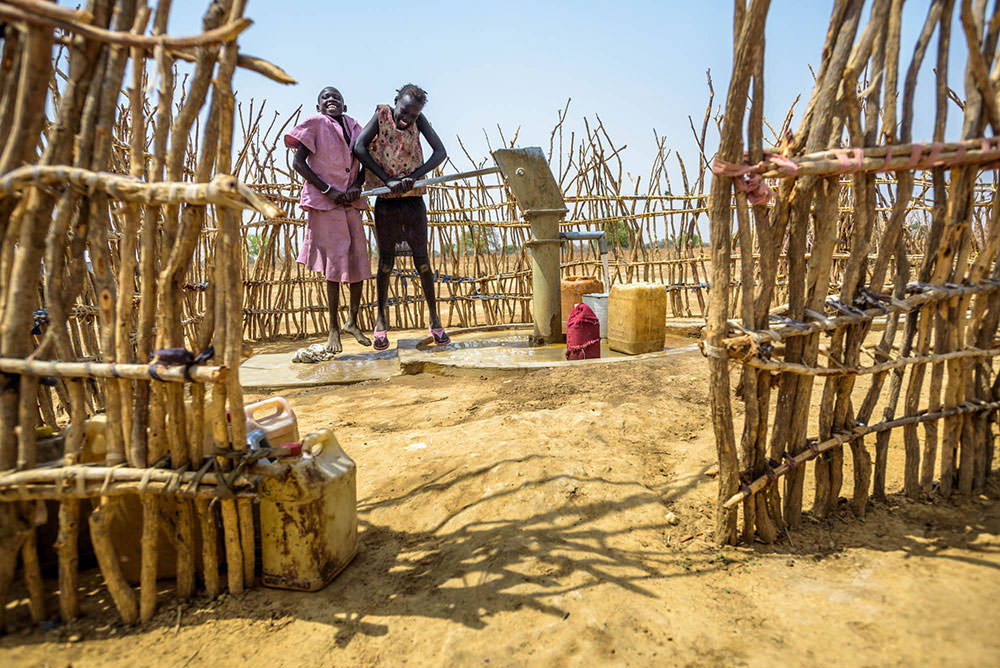
One of the most beautiful images we saw at the camp was a cross that had been carved into a tree. When you run away from home, you leave everything behind, including your church. The cross had been carved there for Easter services. It was a sign of hope—that the people of South Sudan still have faith.
The Lord says, ‘Take up your cross and follow me.’ That reminds me that the path of our faith is not necessarily going to be comfortable. It looks a lot like the cross. I think that is one of the things that keeps me going.
In South Sudan, as in everywhere World Vision works, our staff amazes me. There’s Madeleine Bilonda, a Congolese doctor who runs all of the programs in Warrap state. Madeleine’s strong faith, her experience in serving in relief situations, and a sunny personality that lights up a room, bring hope to the people of South Sudan. Madeleine has served in South Sudan for five years now, joining a team that has been present in the area since 1972.
Madeleine Bilonda

Our long-term presence gains us trust. We have the trust of the government. They remember us throughout the previous conflict. We’ve gained the trust of the church. We work closely with the church in many, many sites. We are a recognized name to church leaders, which allows us to use them as partners in doing the work we do.
“Trust of the church”
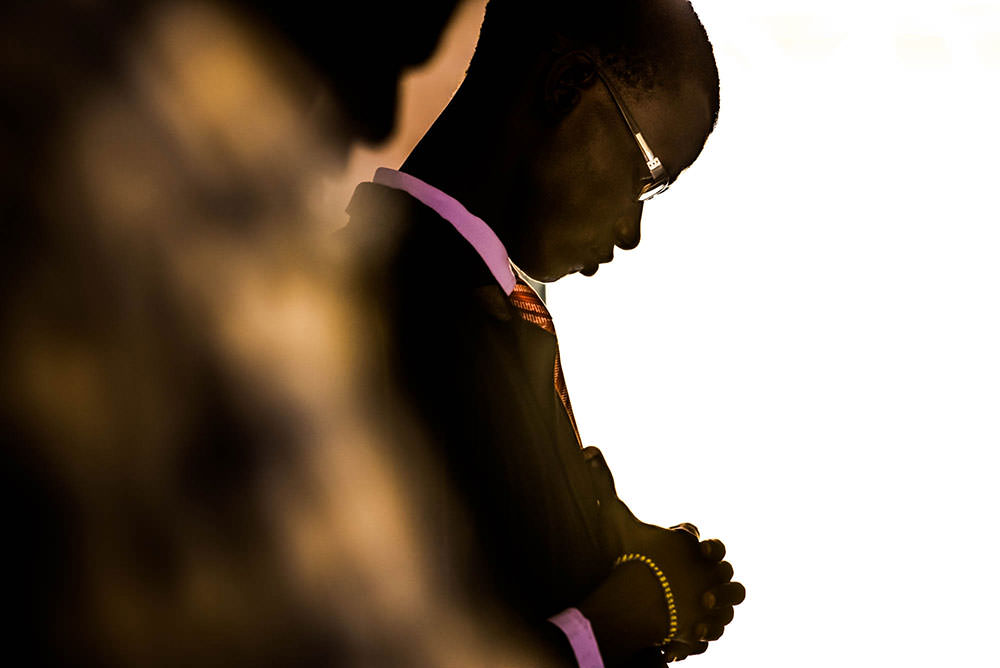
In South Sudan, there is so much to do. Staff like Madeleine work most every day. She takes off Sundays to go to church, work in the garden of the World Vision compound, and cook a big meal for the staff. She listens to gospel music, reads the Bible and Joel Osteen’s books to maintain the kind of attitude a leader needs in South Sudan—turning obstacles into opportunity and hardship into hope.
There is so much to do

We haven’t lost hope as World Vision and I think we help the community retain hope. All the kids, when we ask them, ‘What is it you want?’–they always say two answers: They want peace and they say they want opportunity for education. They want to be doctors. They want to be schoolteachers. There is hope right there.
“We haven’t lost hope”
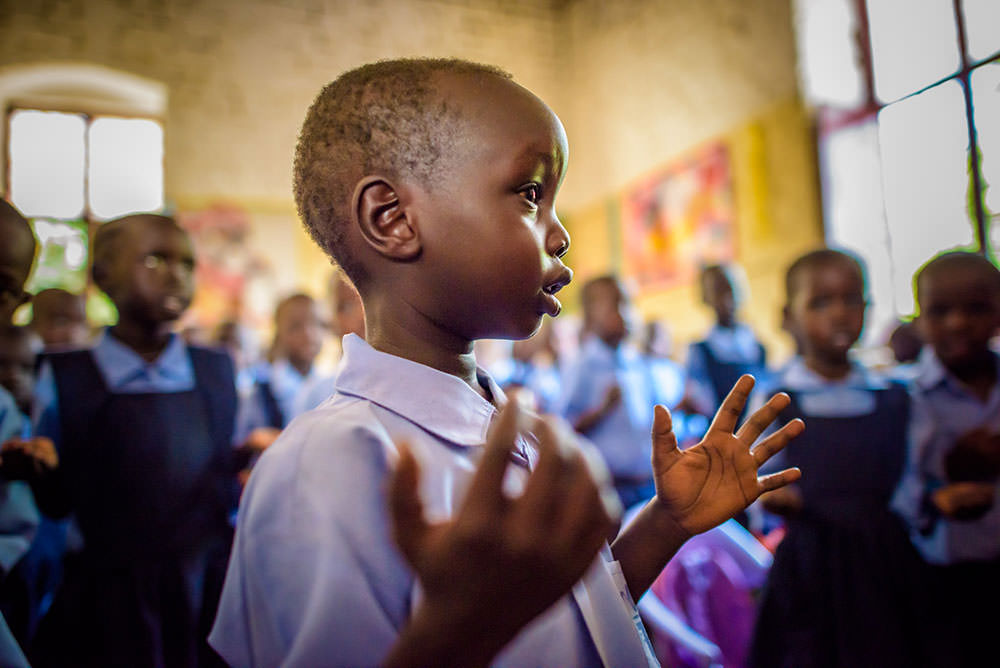
We went to a conference in Warrap state where 100 young people were learning how to promote peace in their villages instead of conflict. We saw the next generation of South Sudan—the generation of hope and resilience. They are the future.
Learning how to promote peace
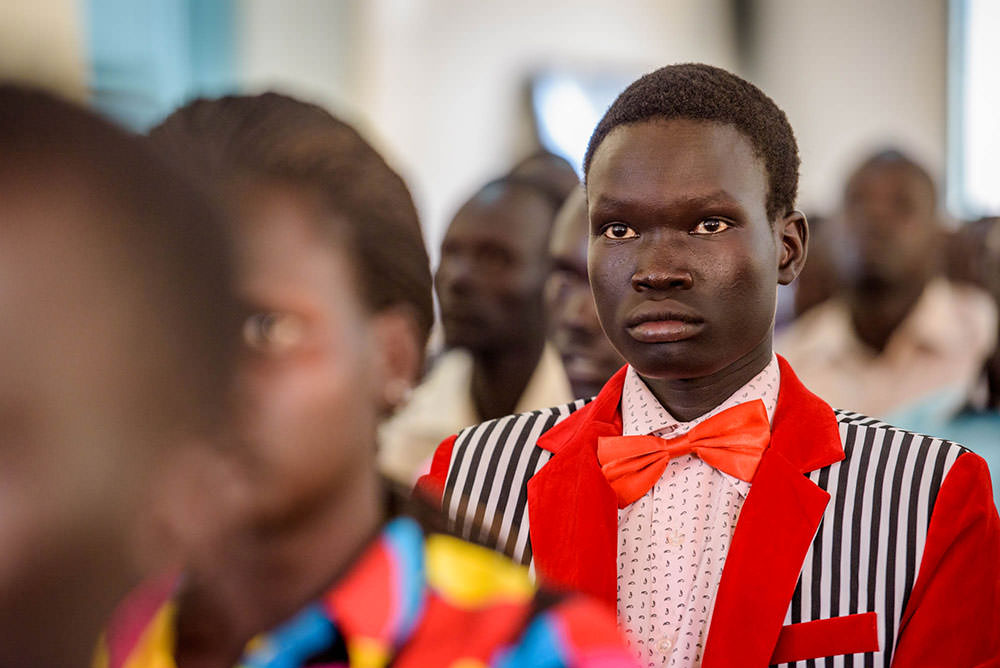
The South Sudanese are tough people. I have no doubt that when peace comes back, they are going to rebuild. I don’t give in too much to the disappointment. Given time and resources, they can build this country back. I have a lot of faith in the South Sudanese, and I don’t think God has given up on South Sudan.
“I don’t think God has given up on South Sudan”
